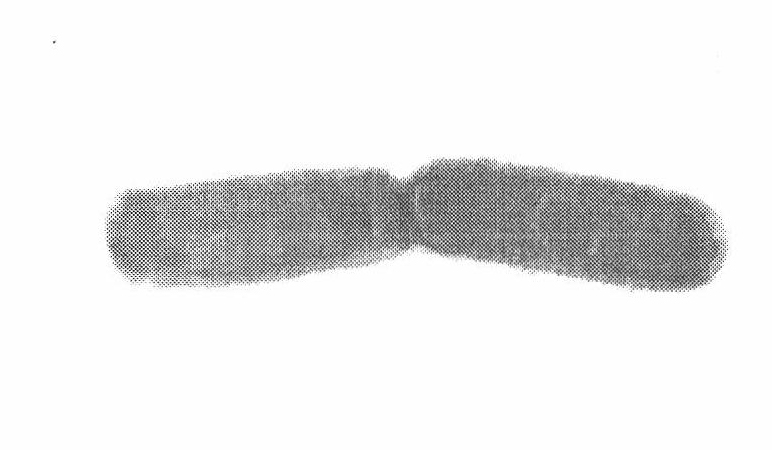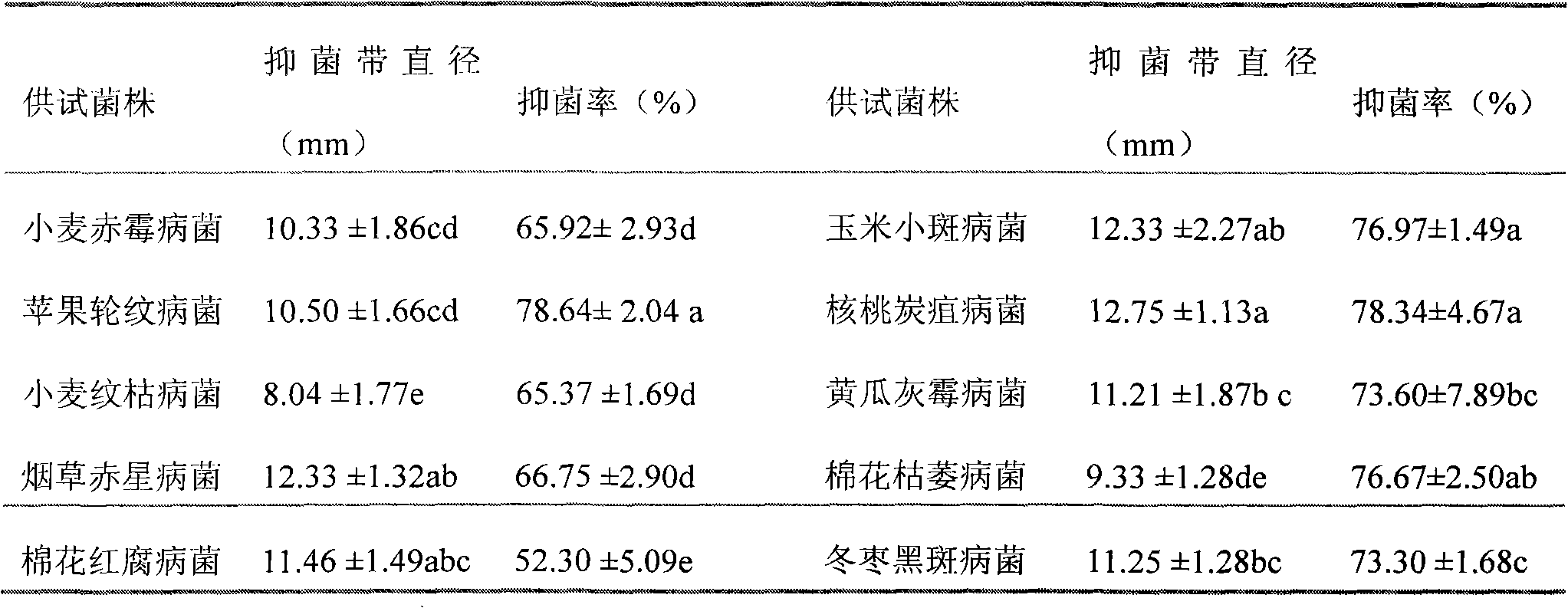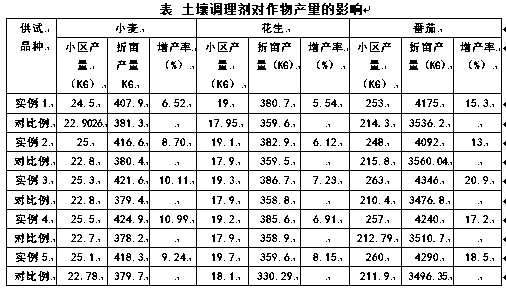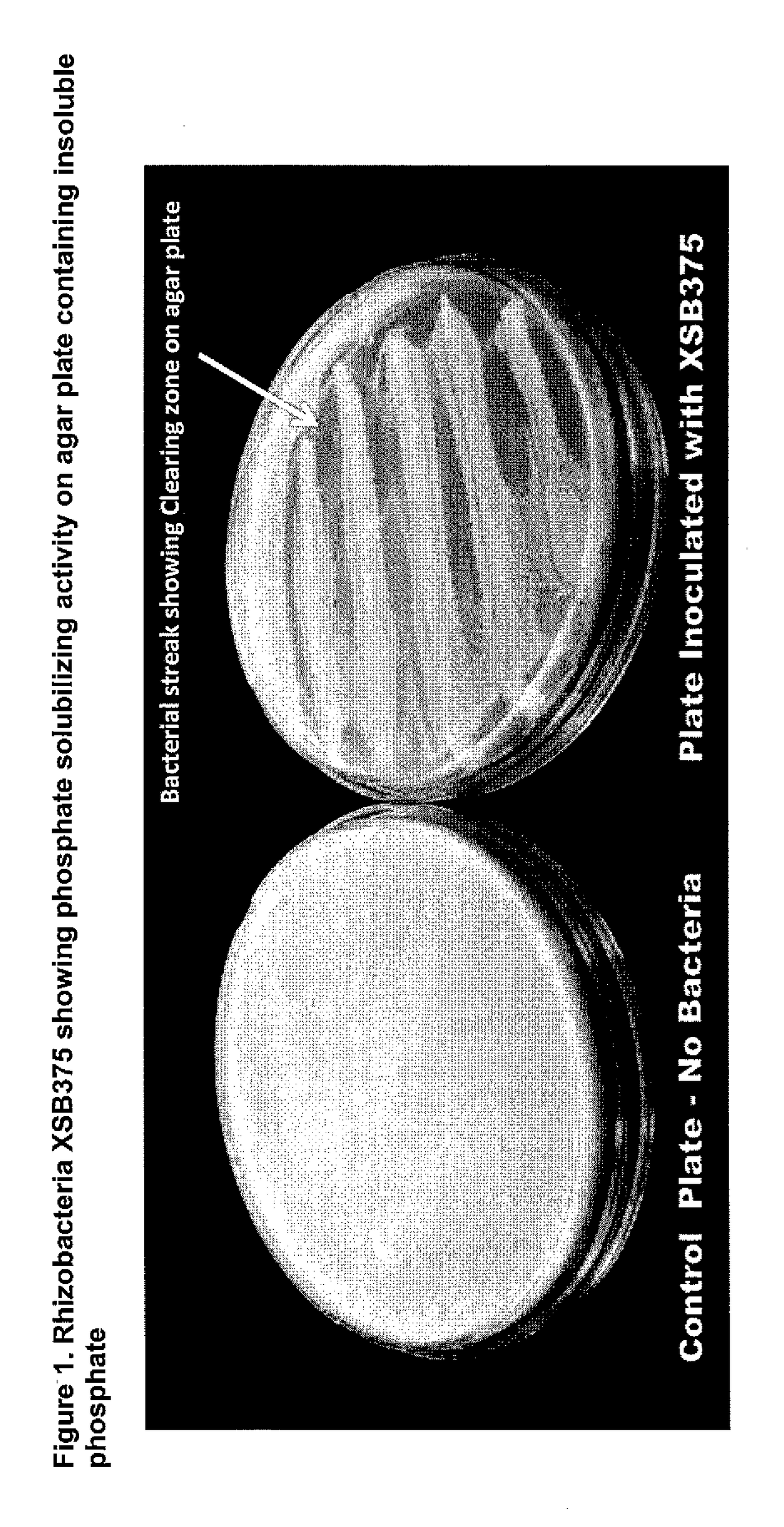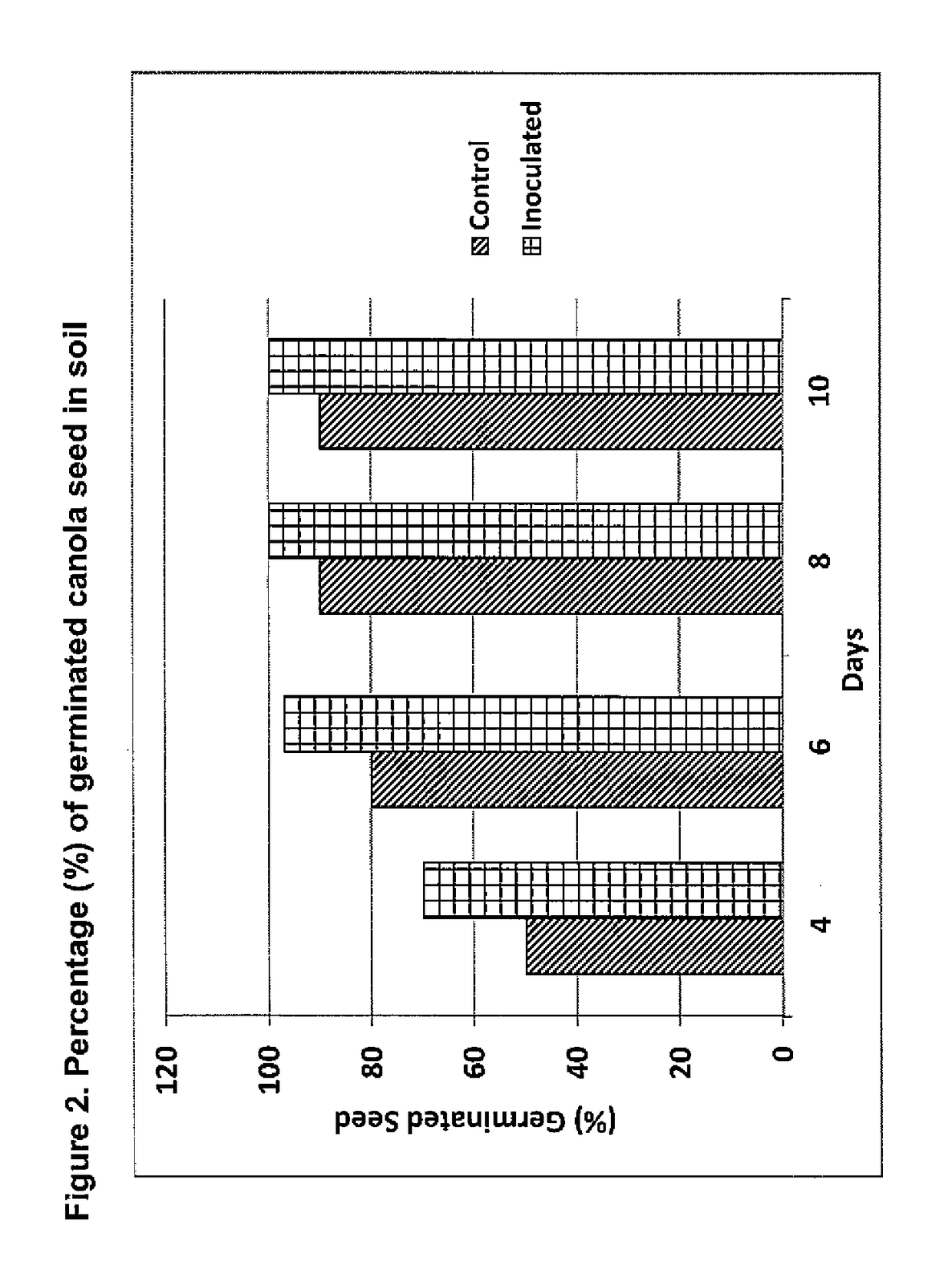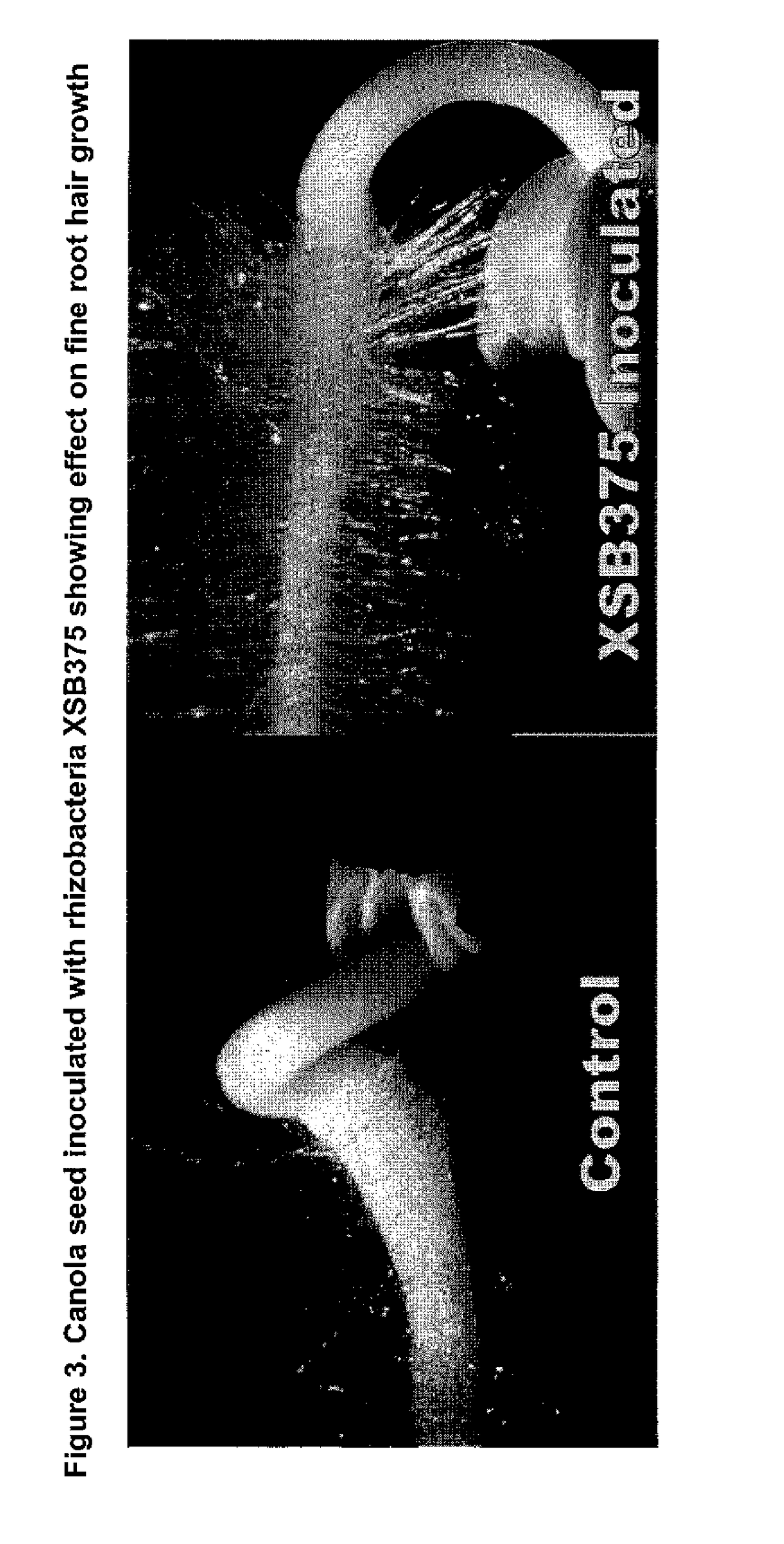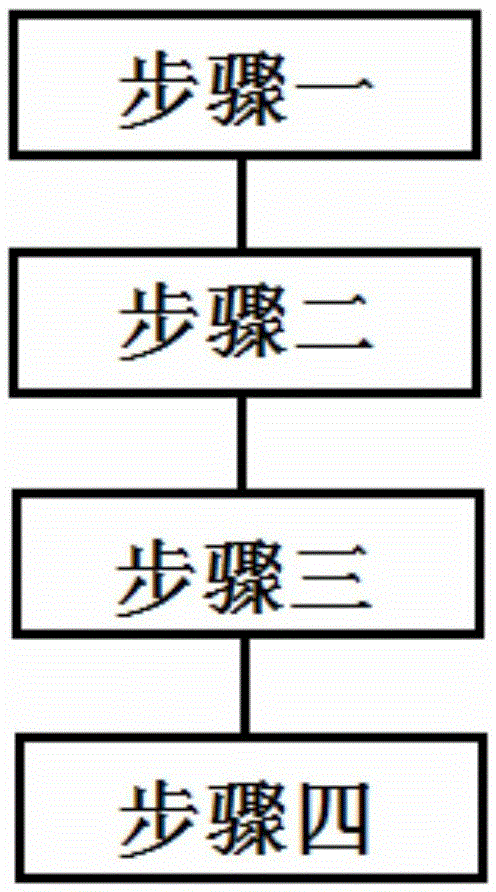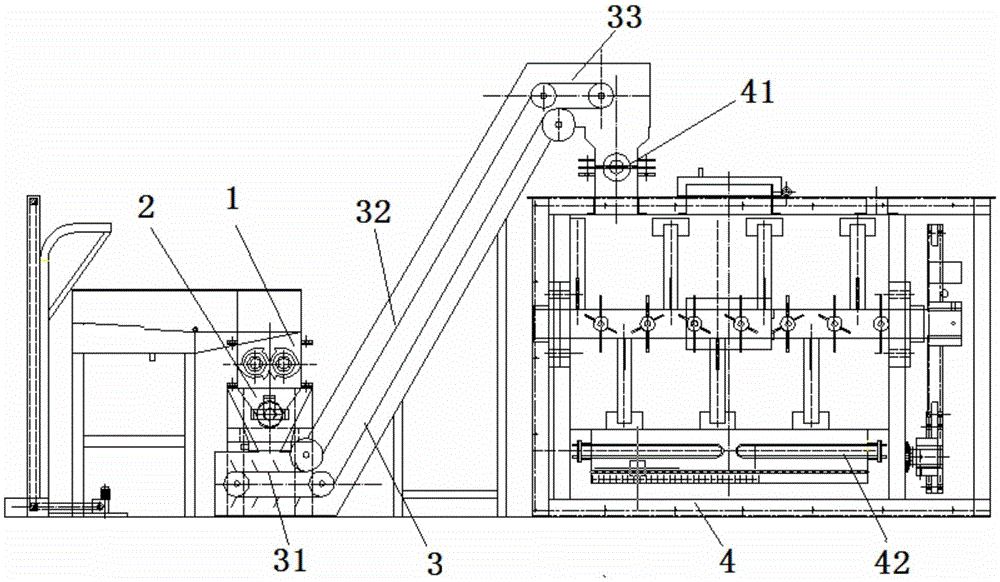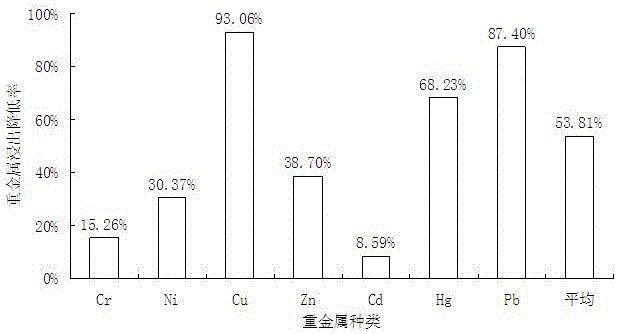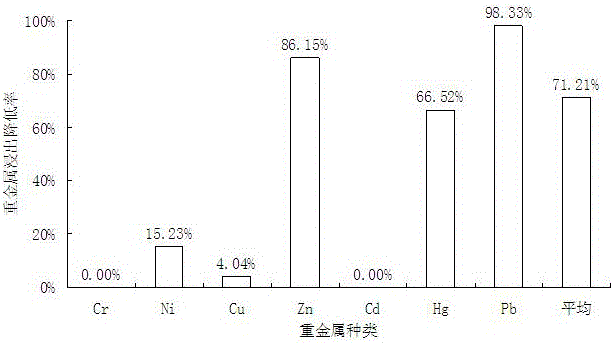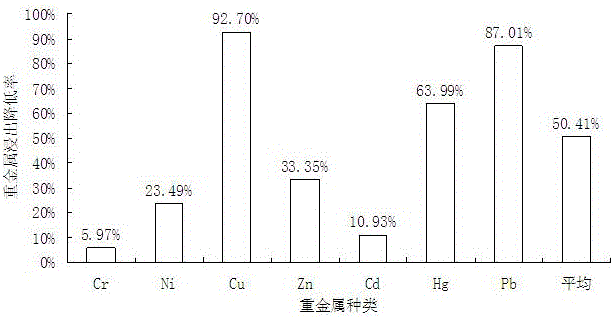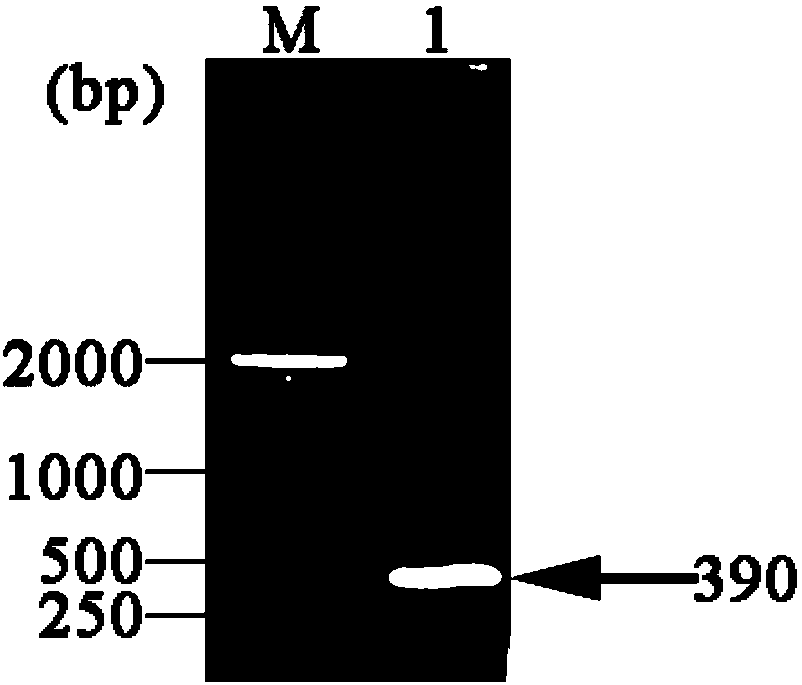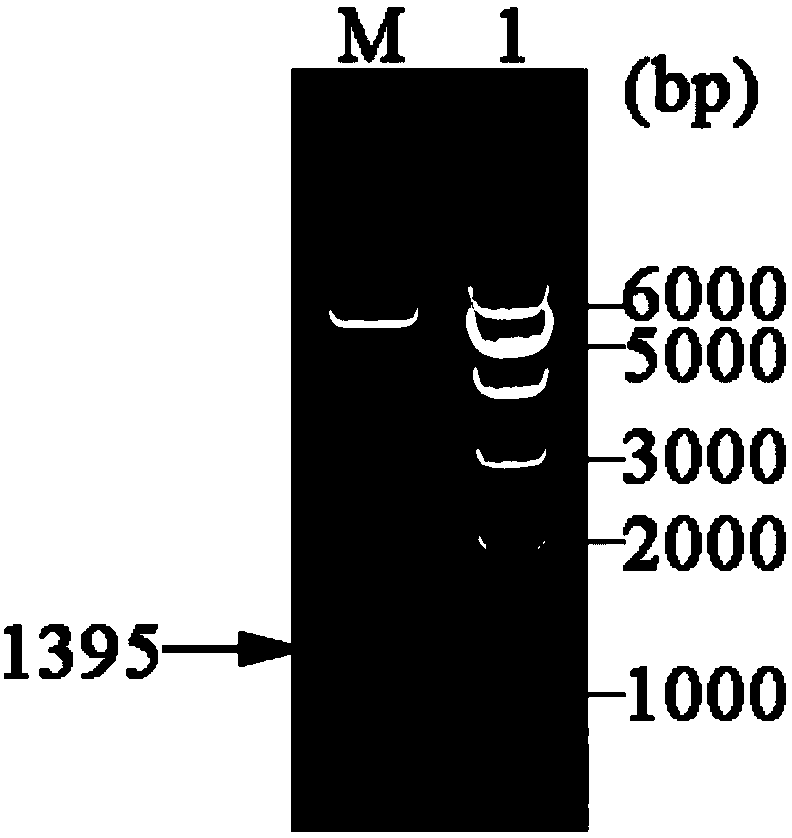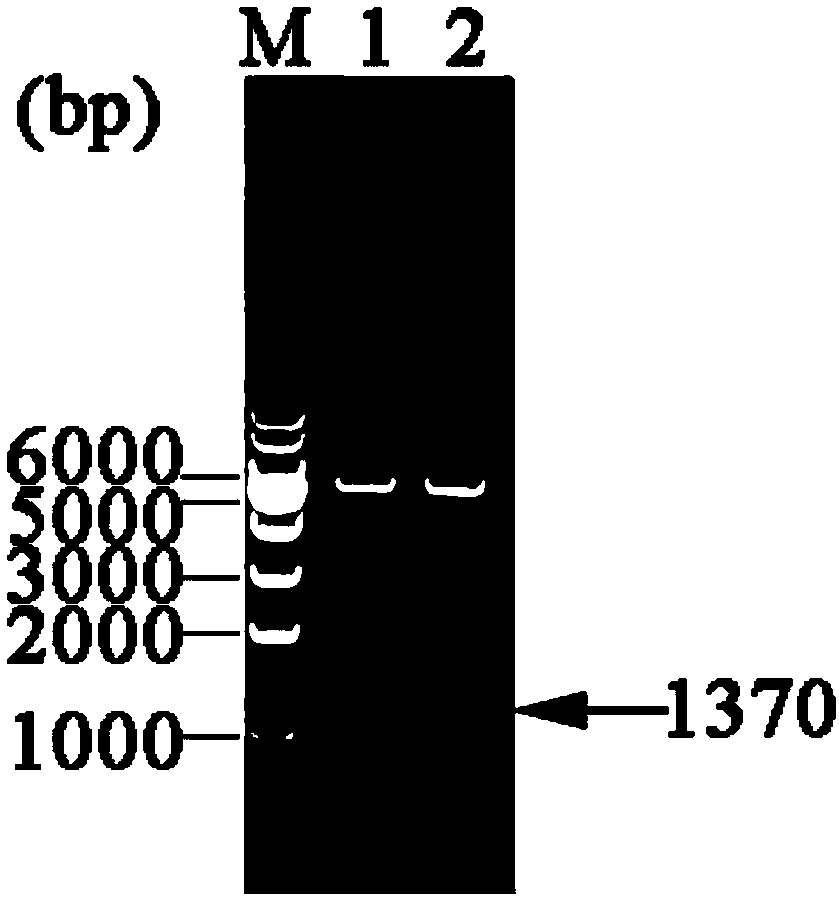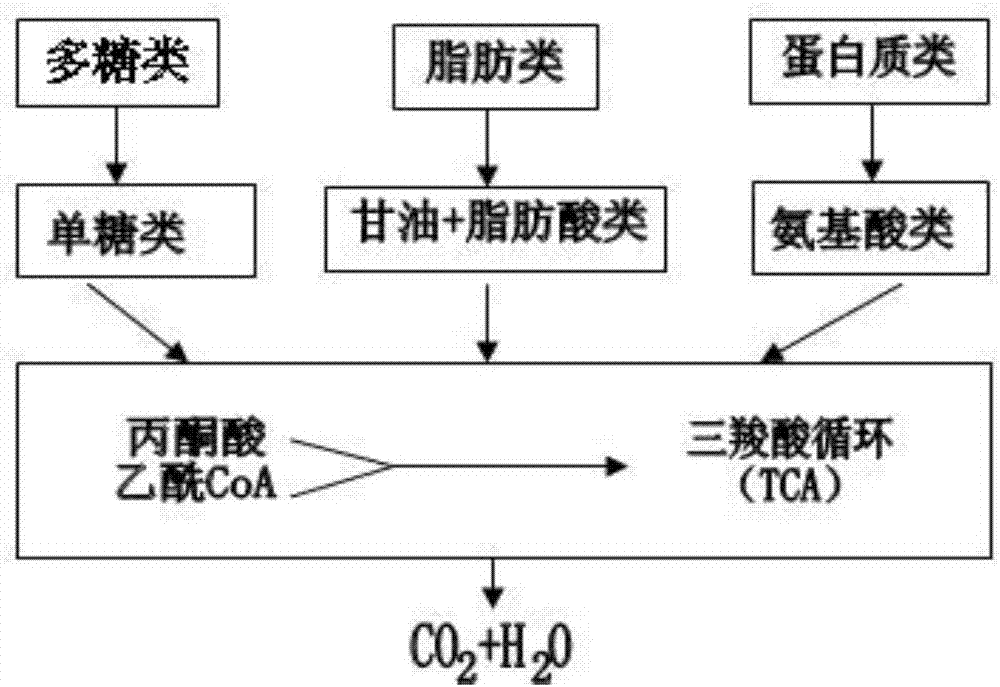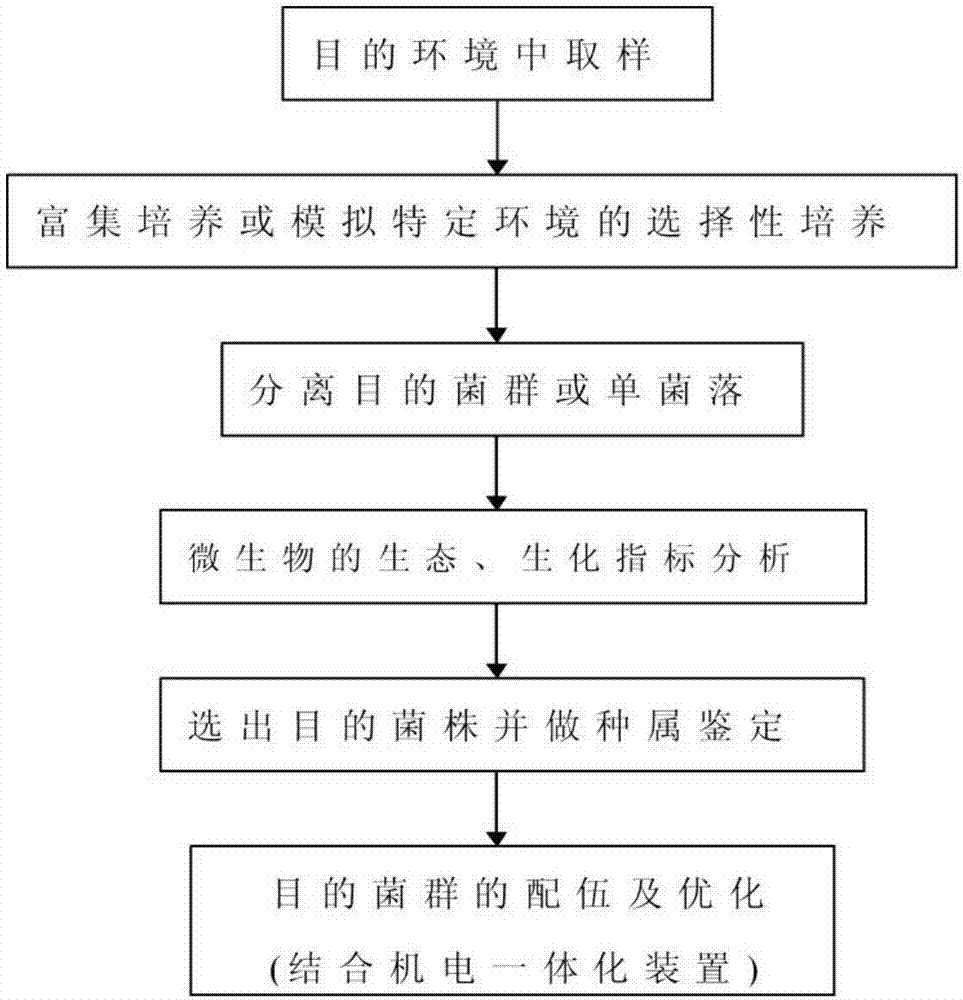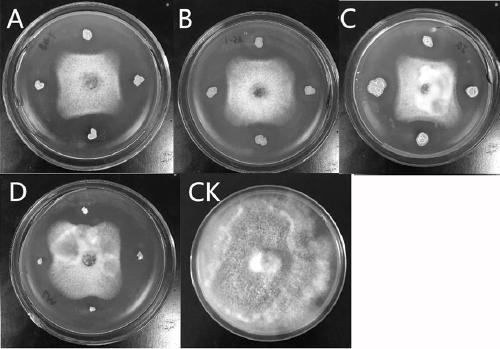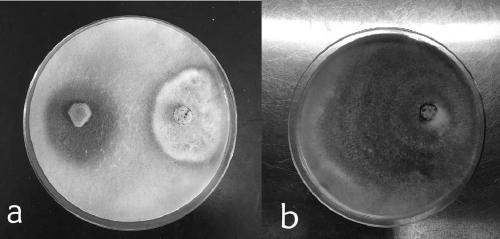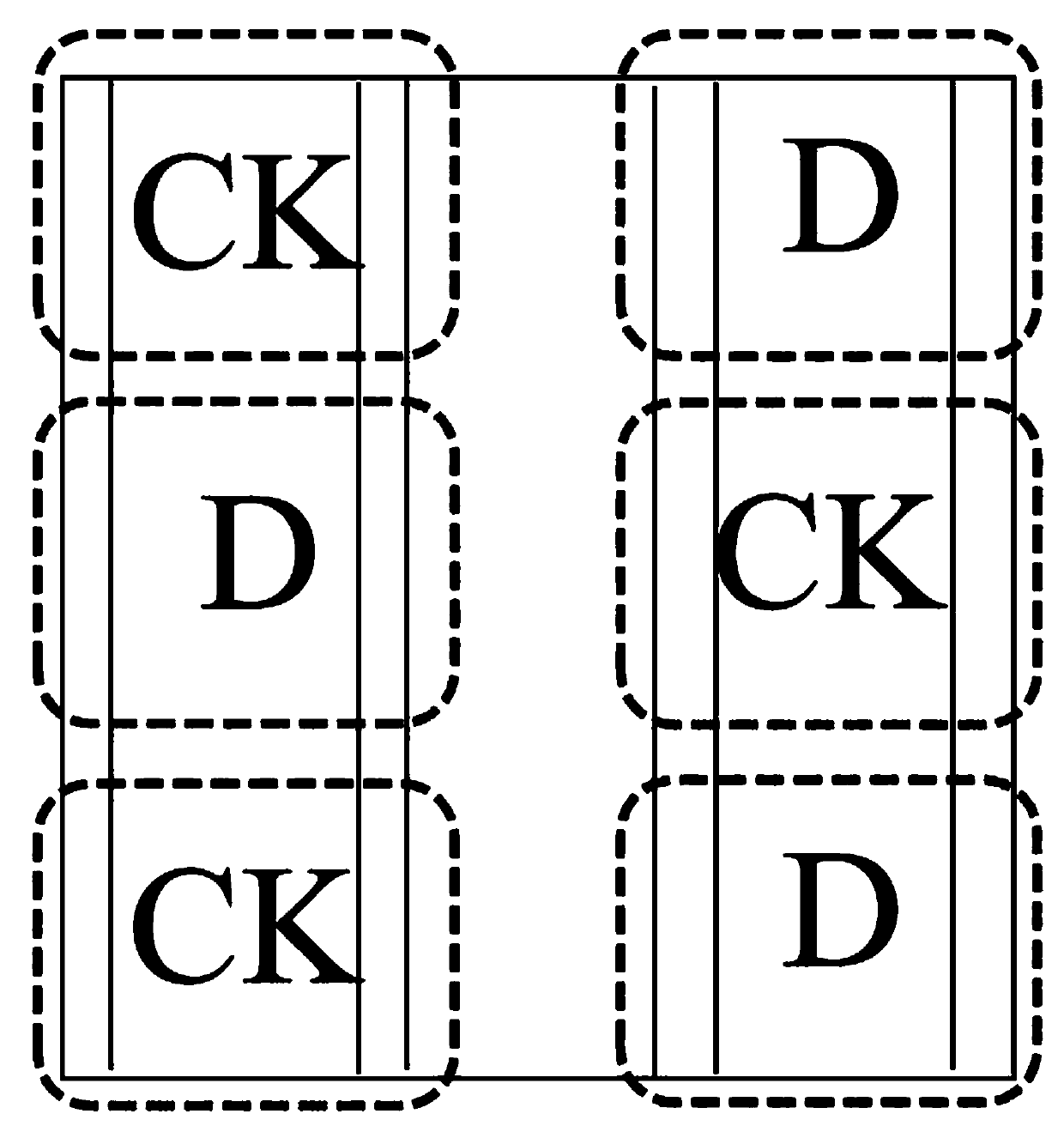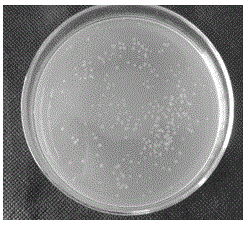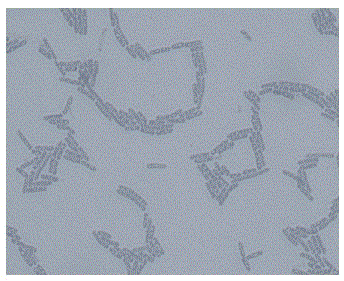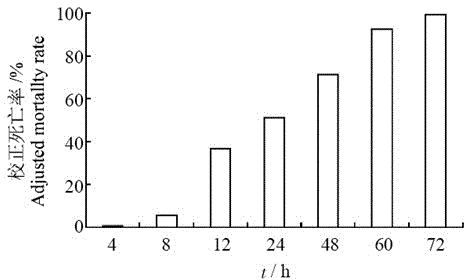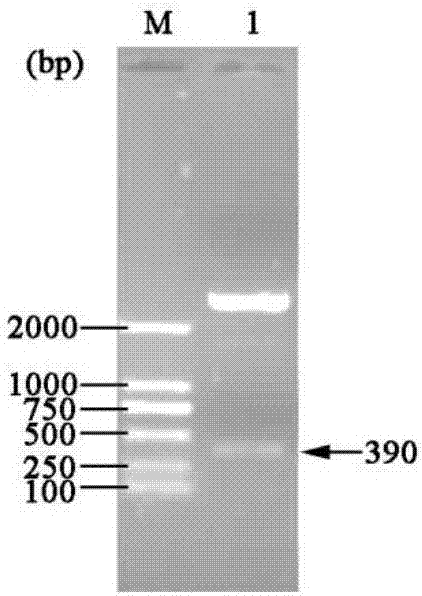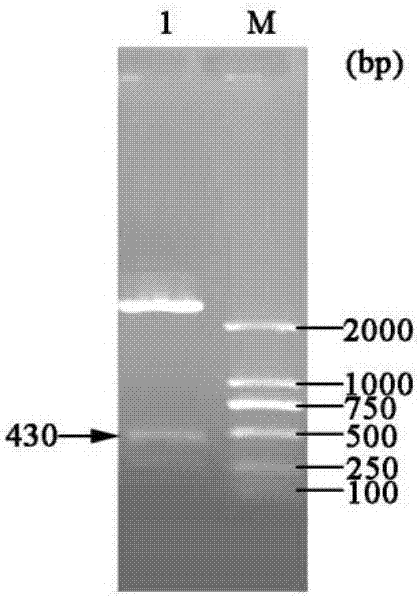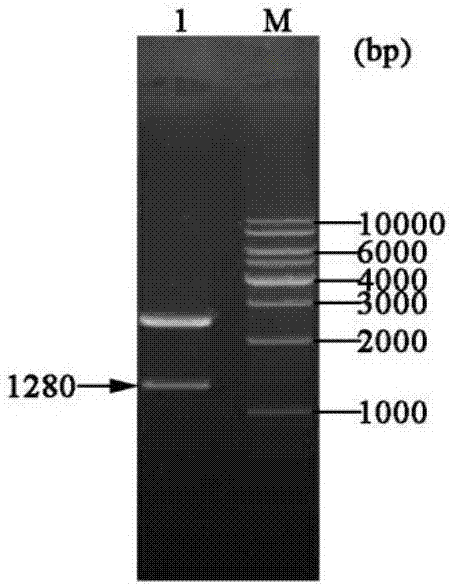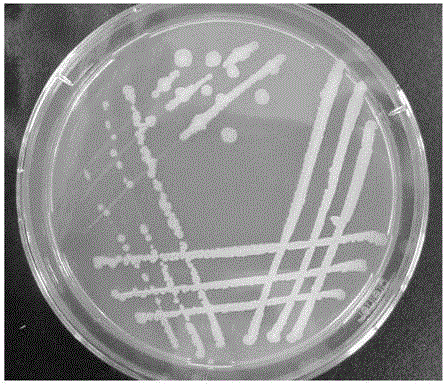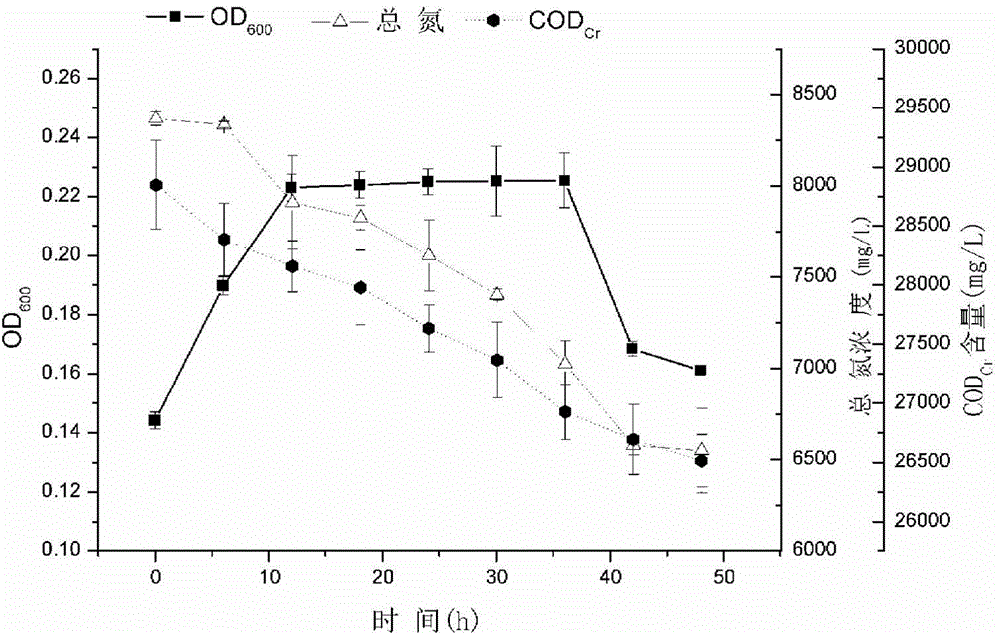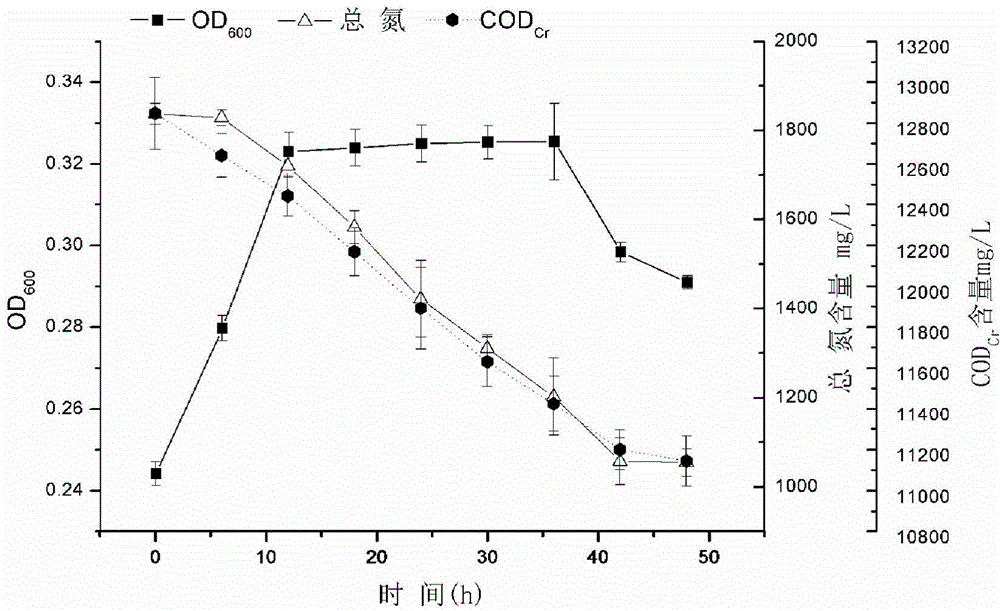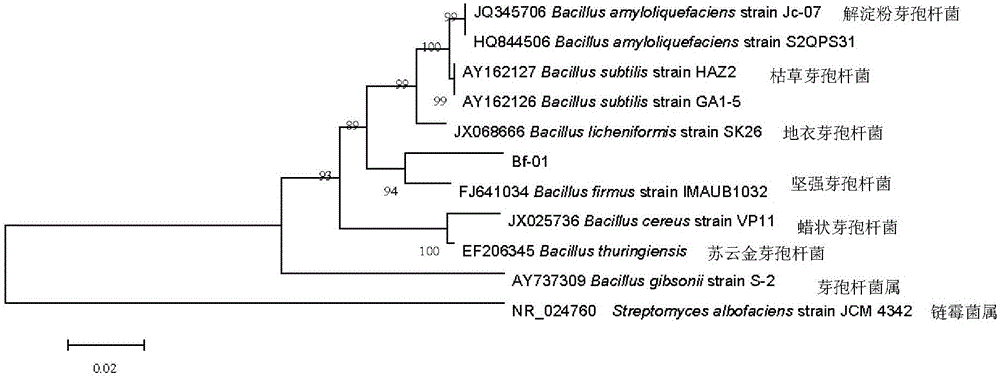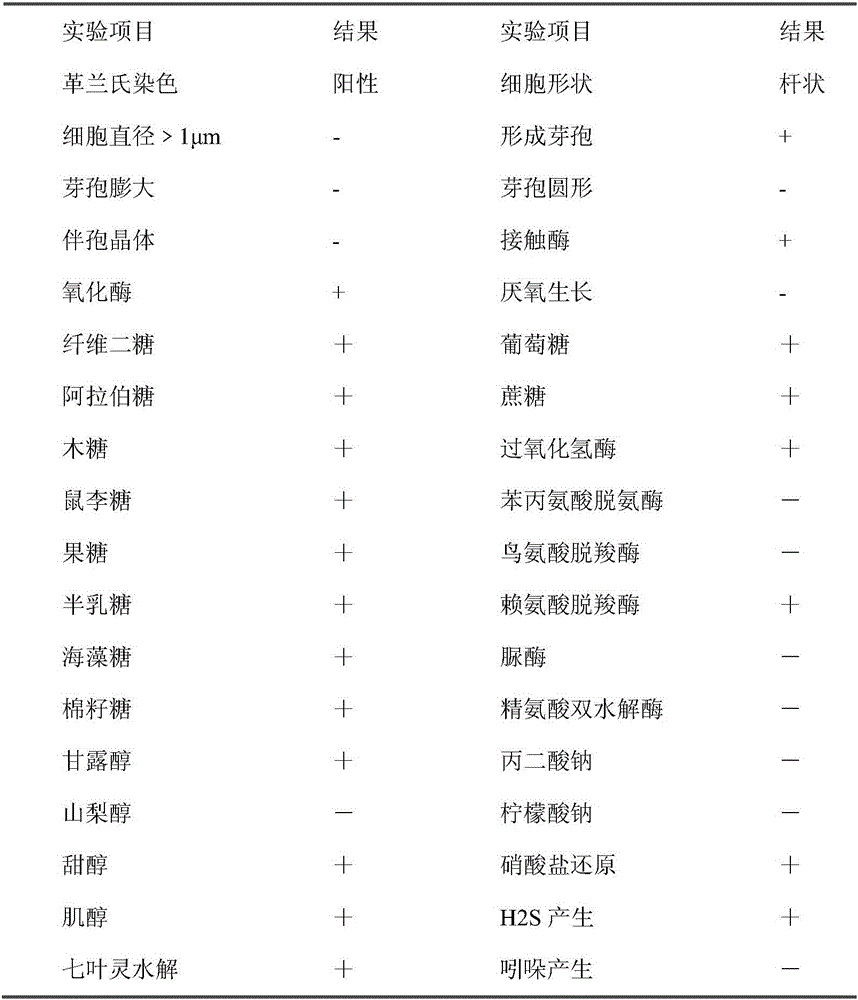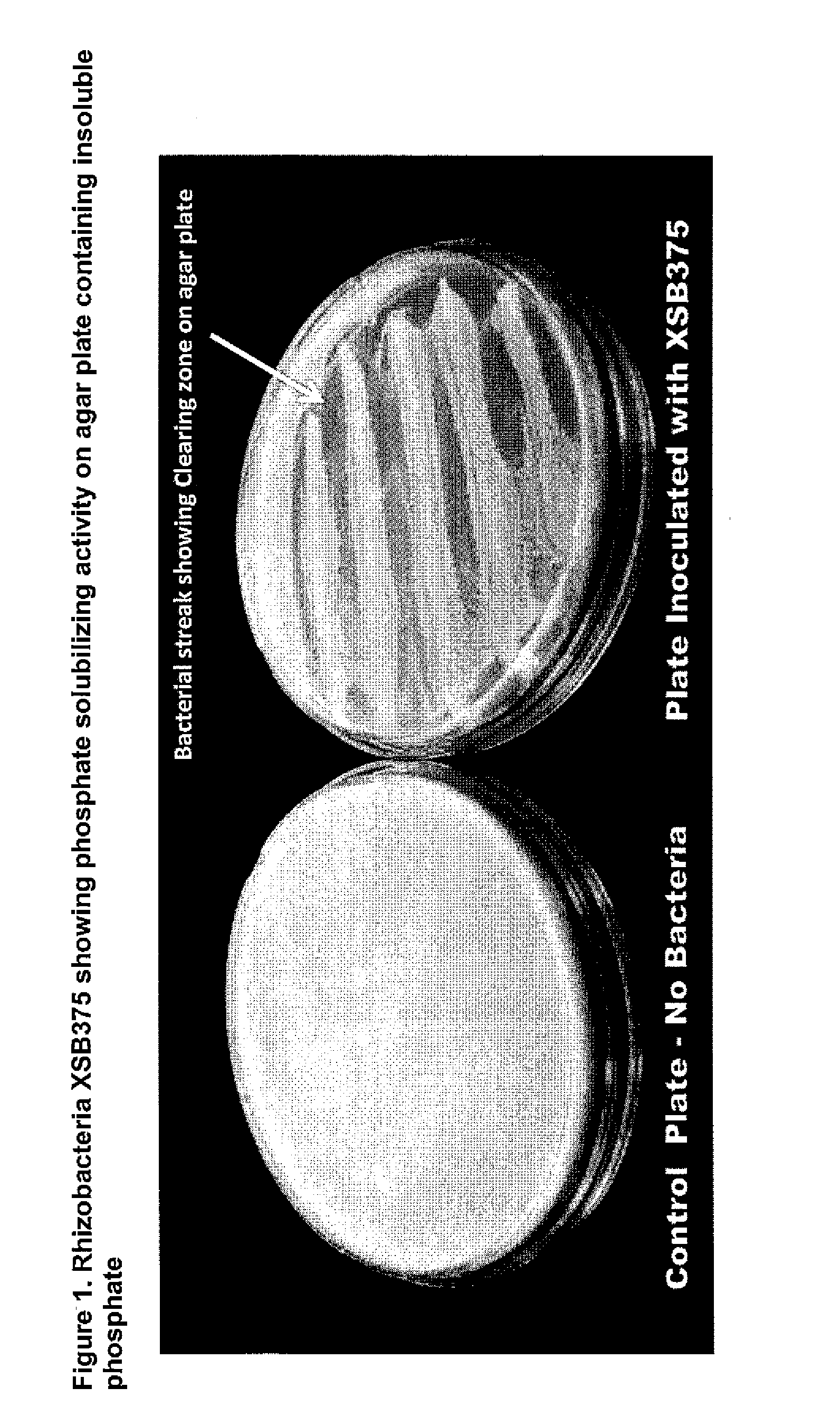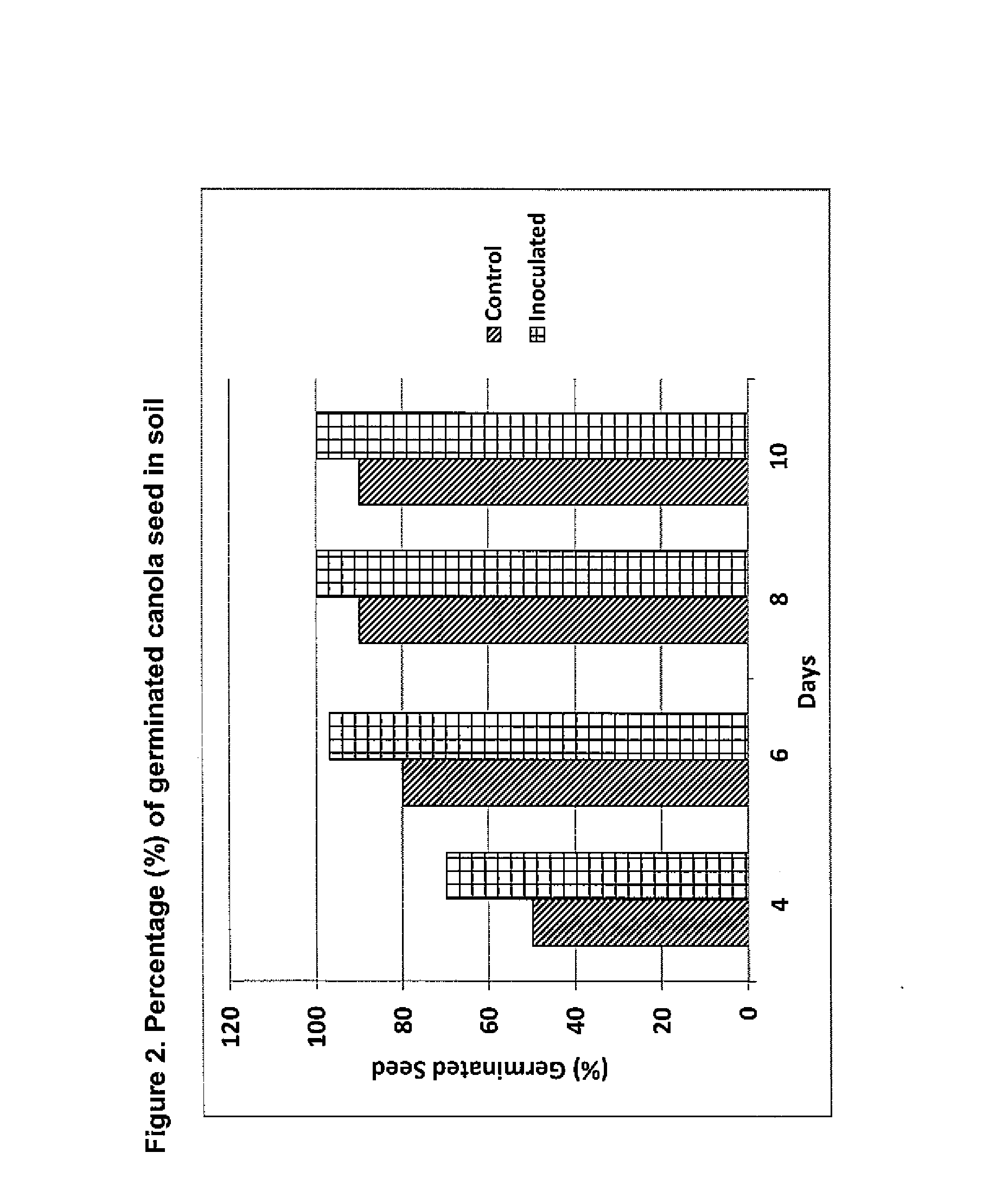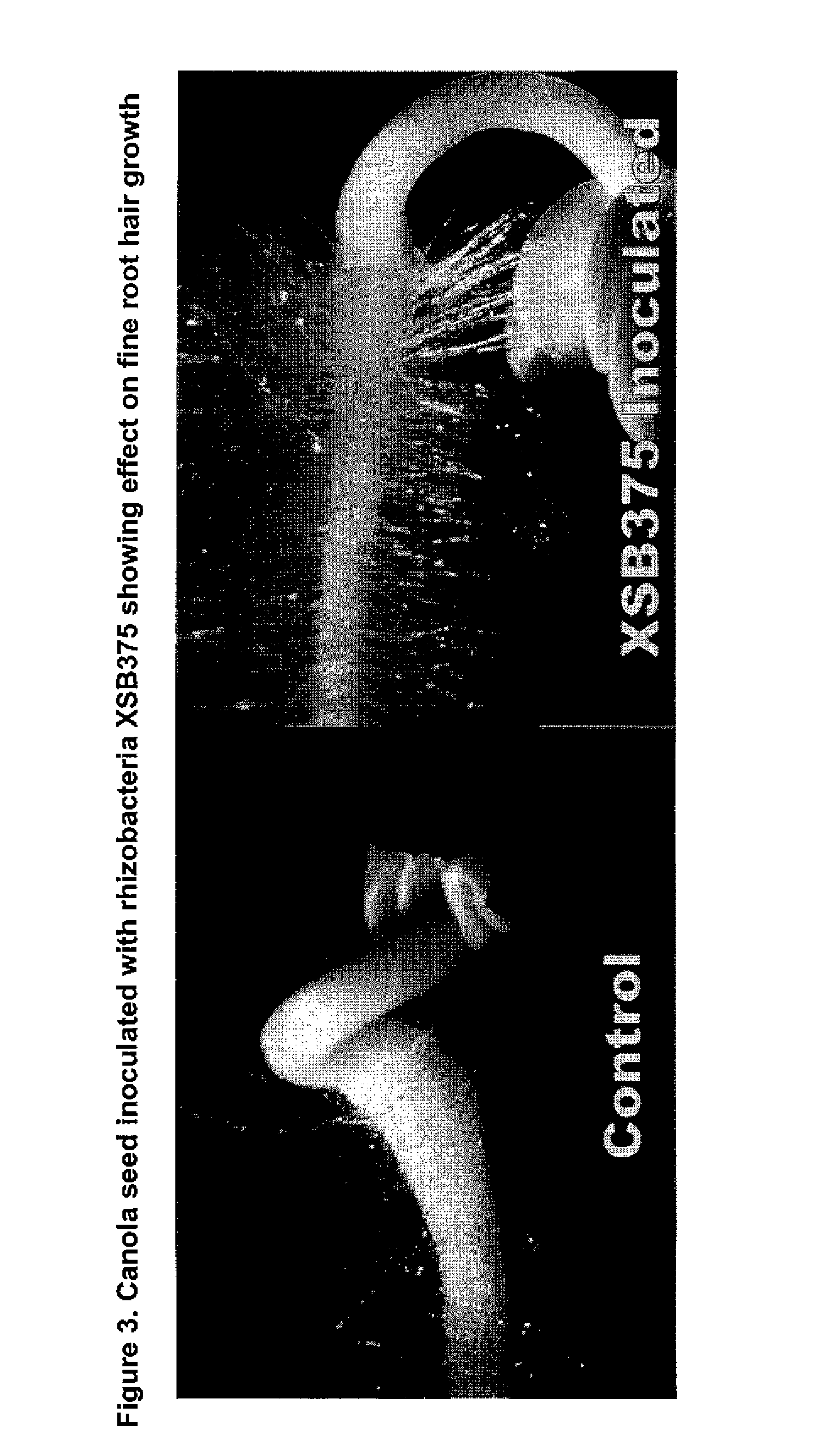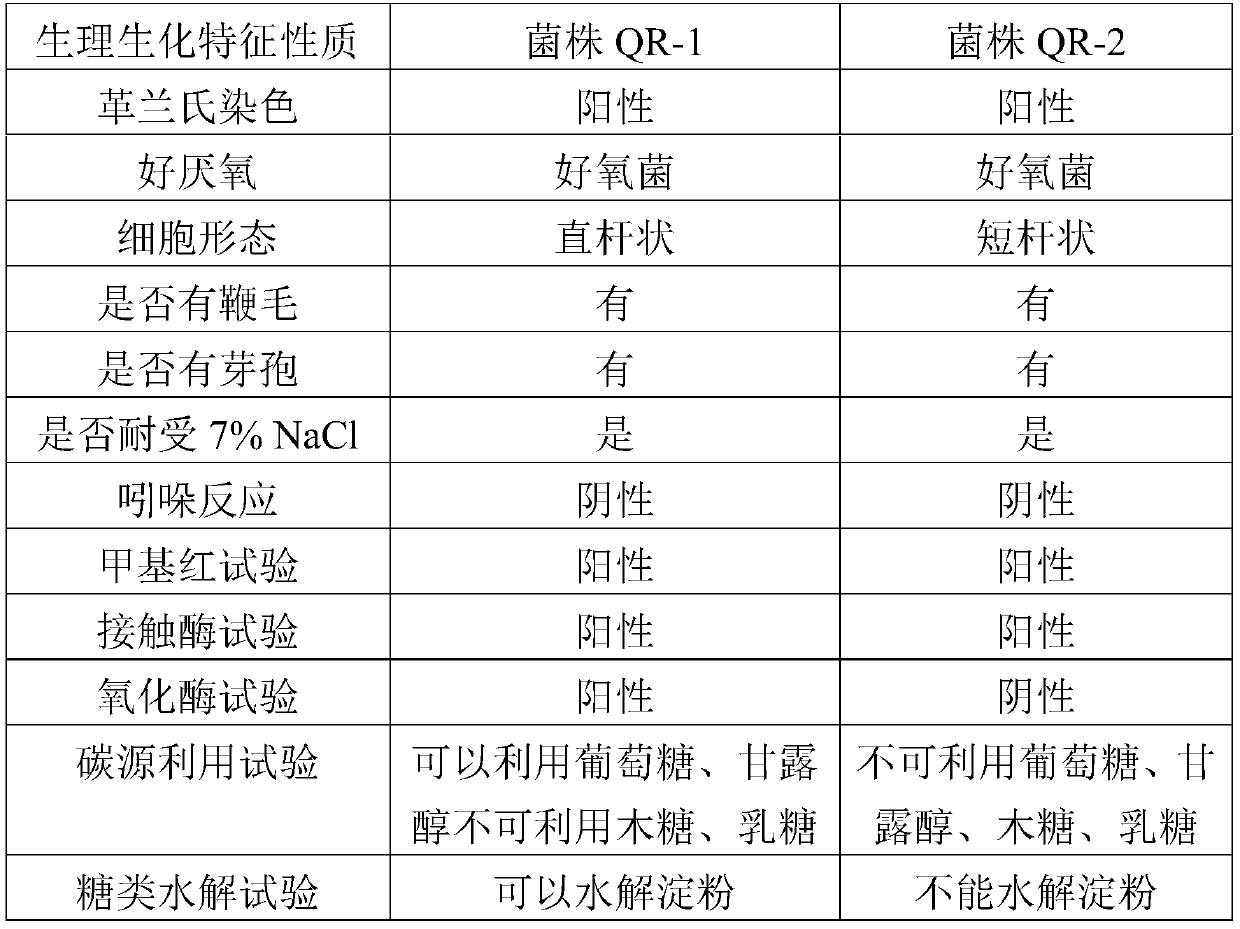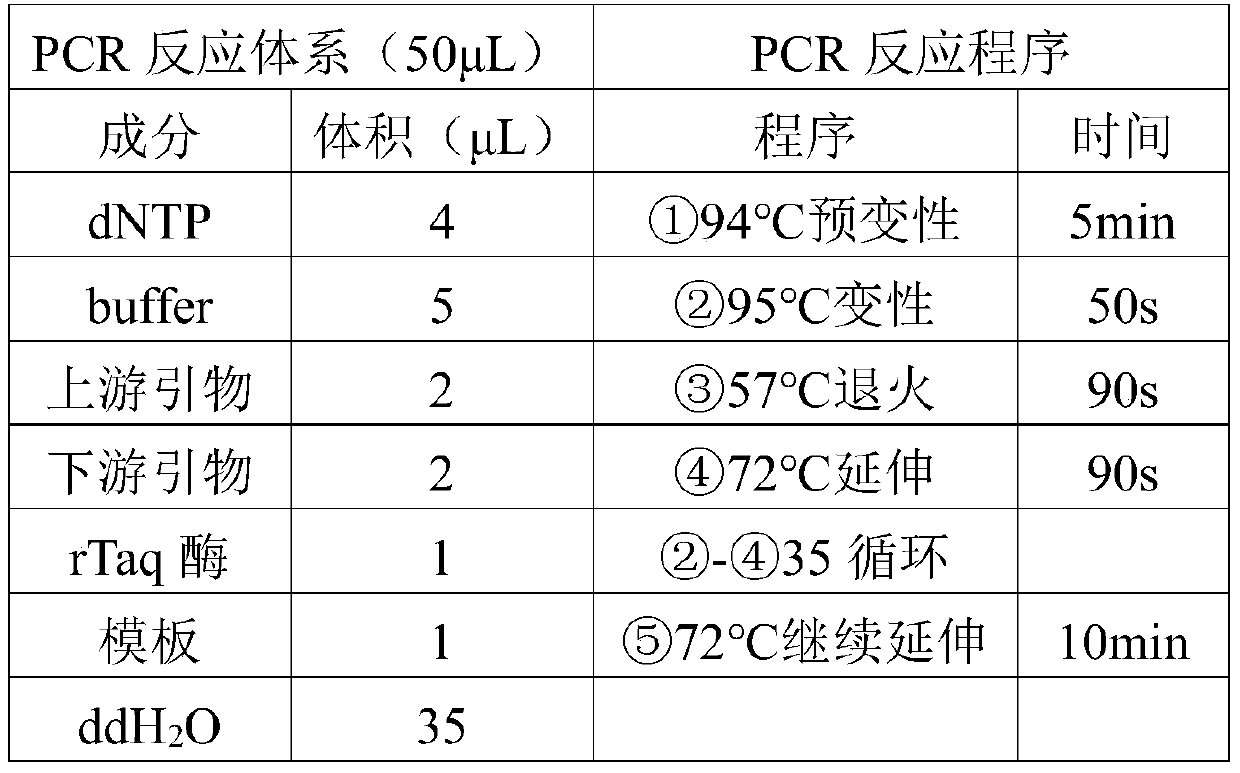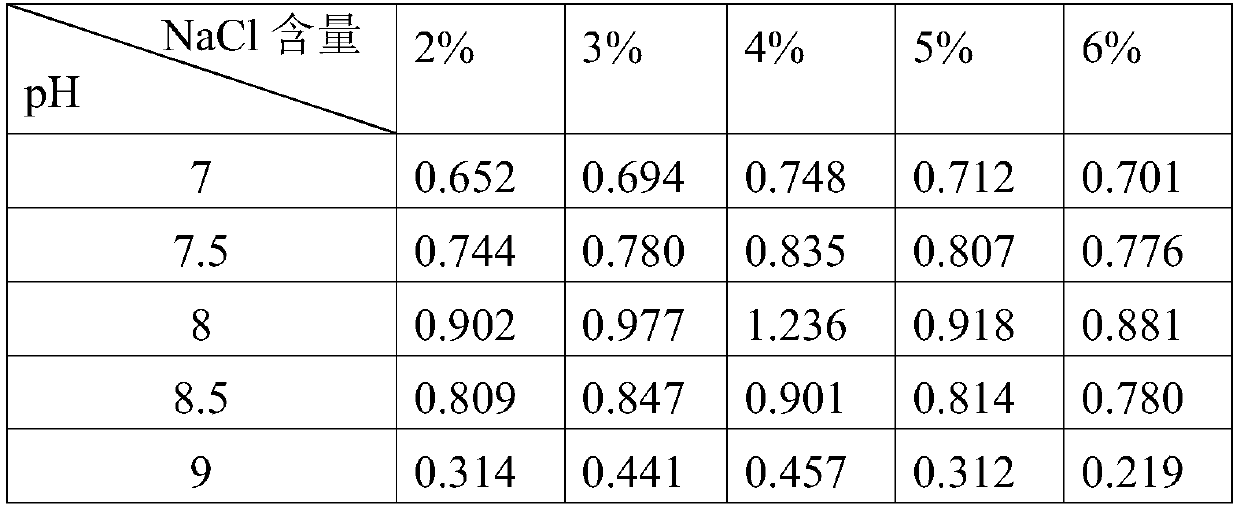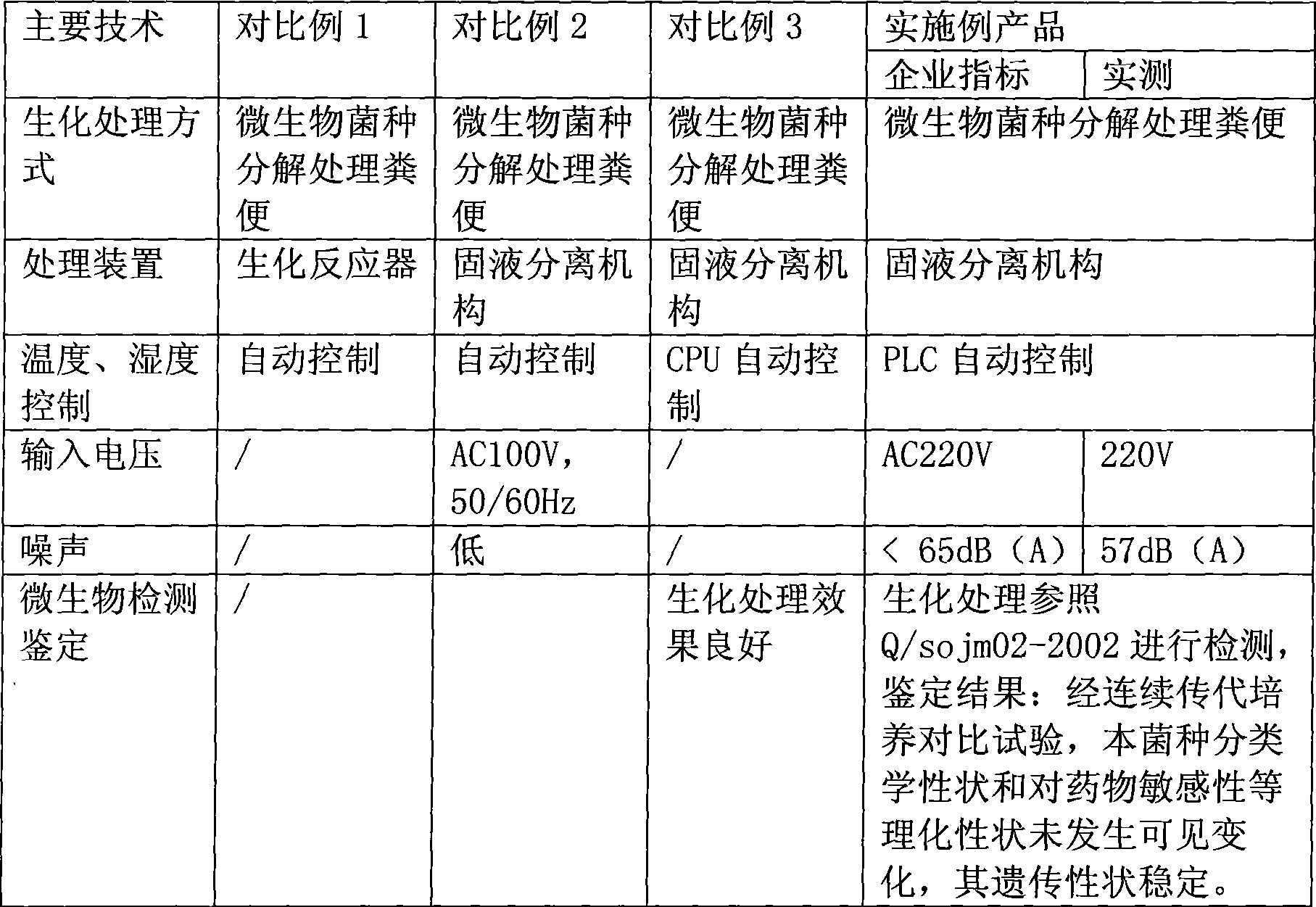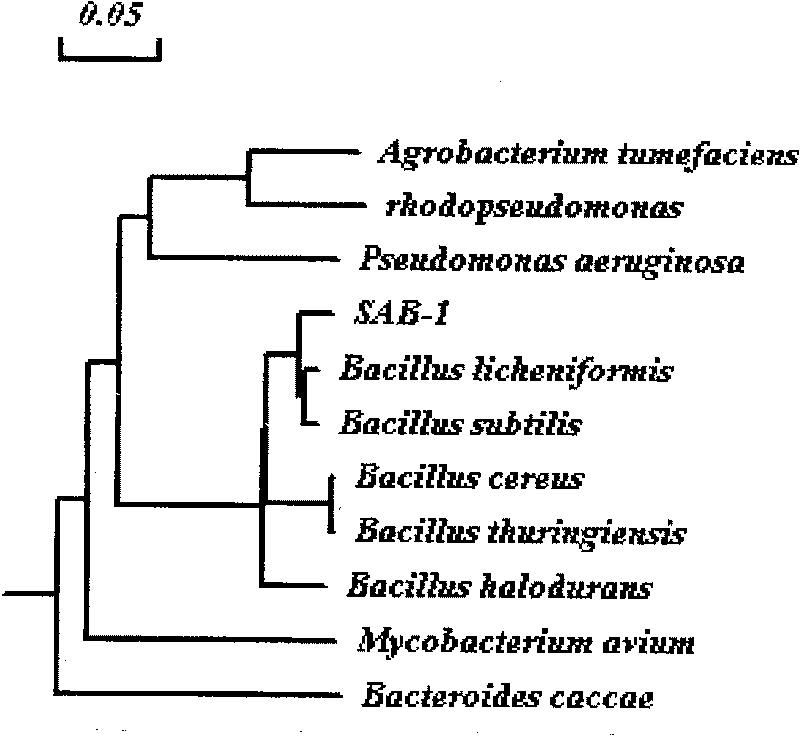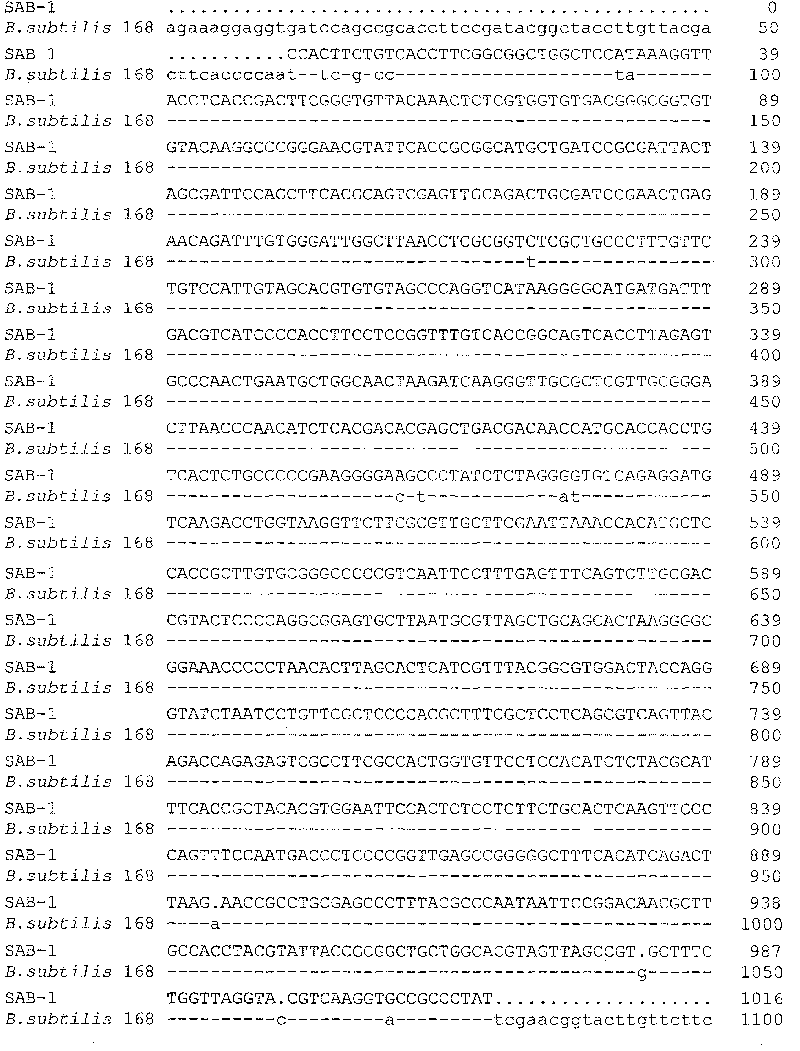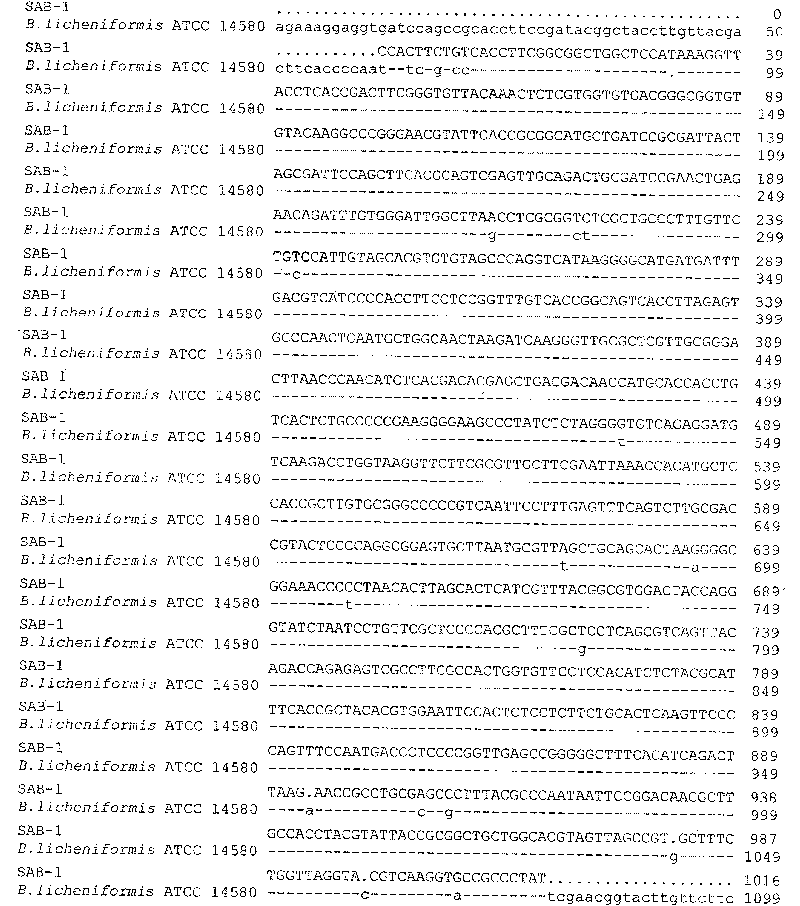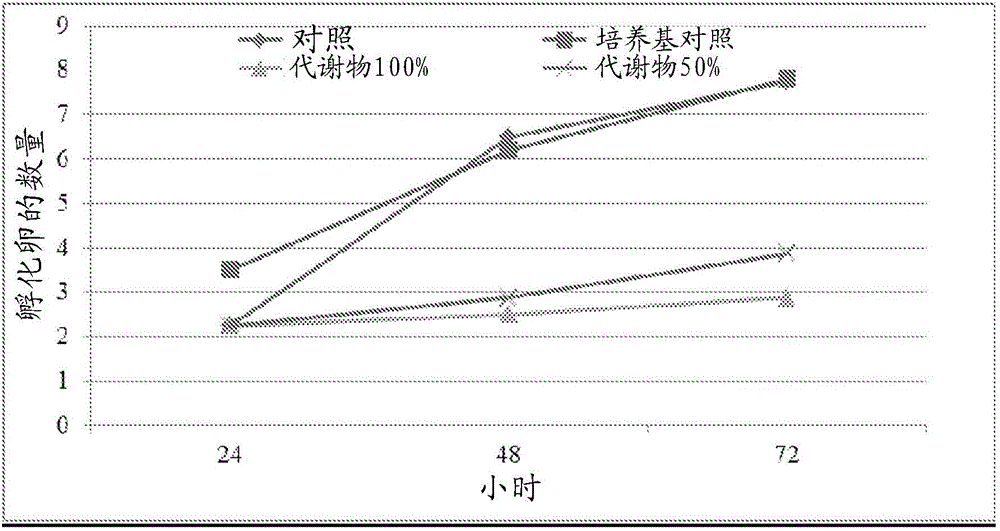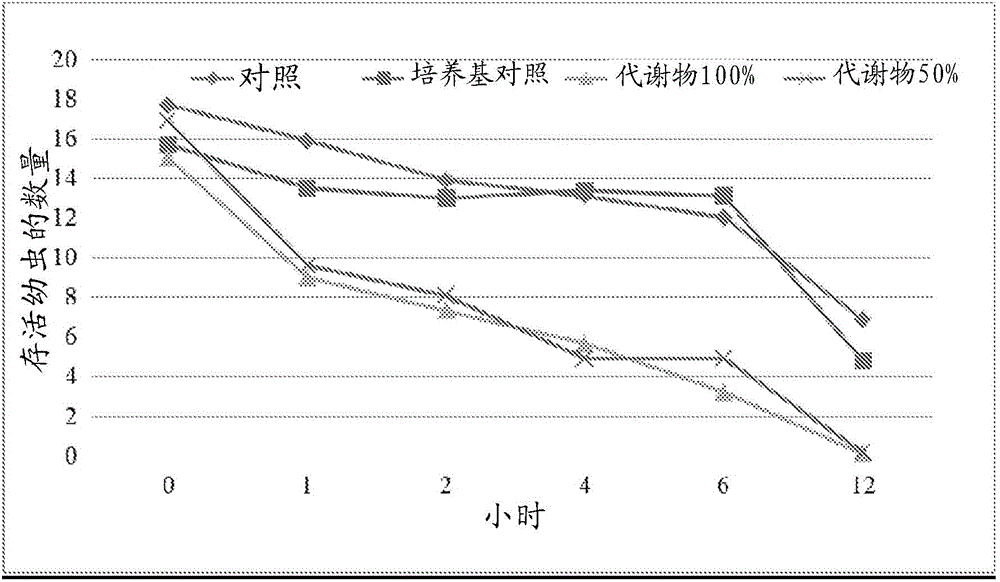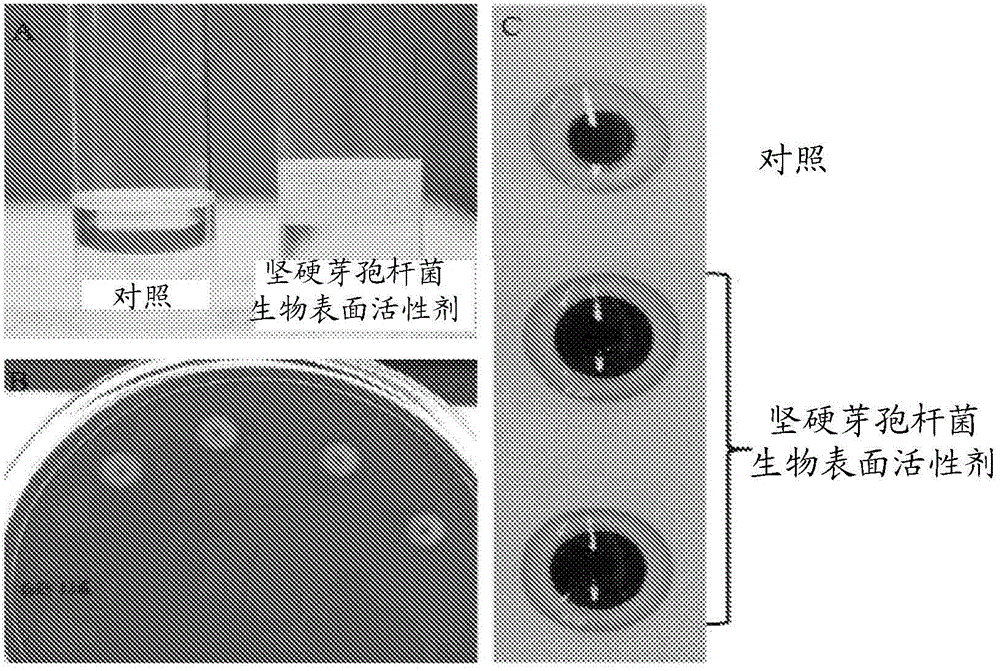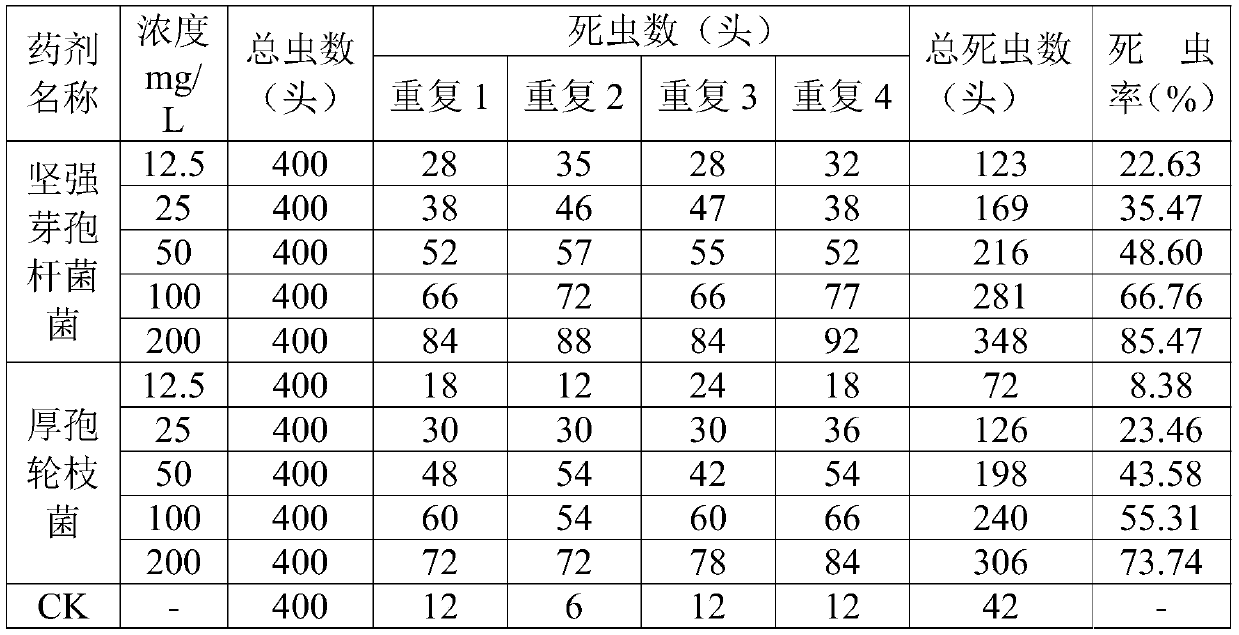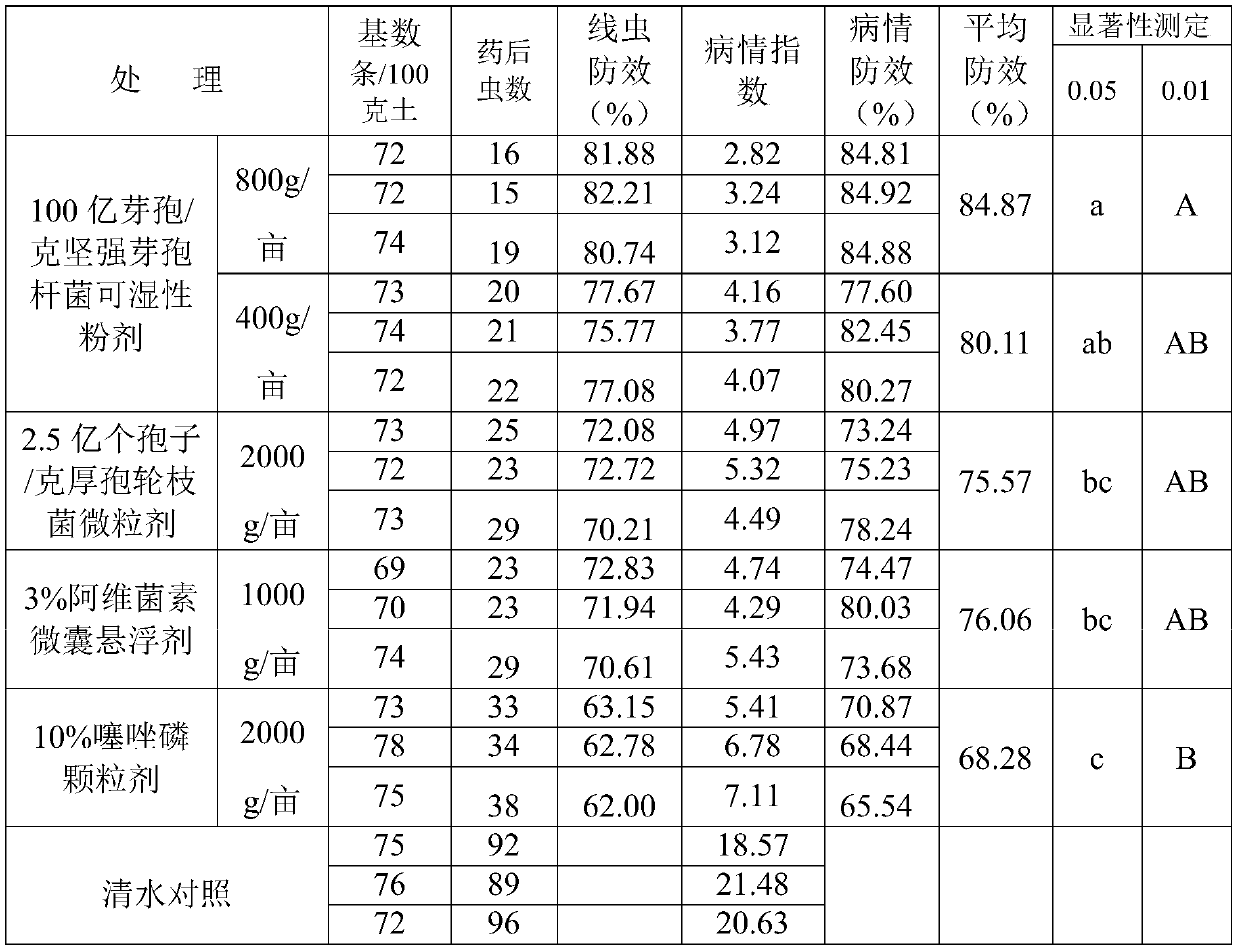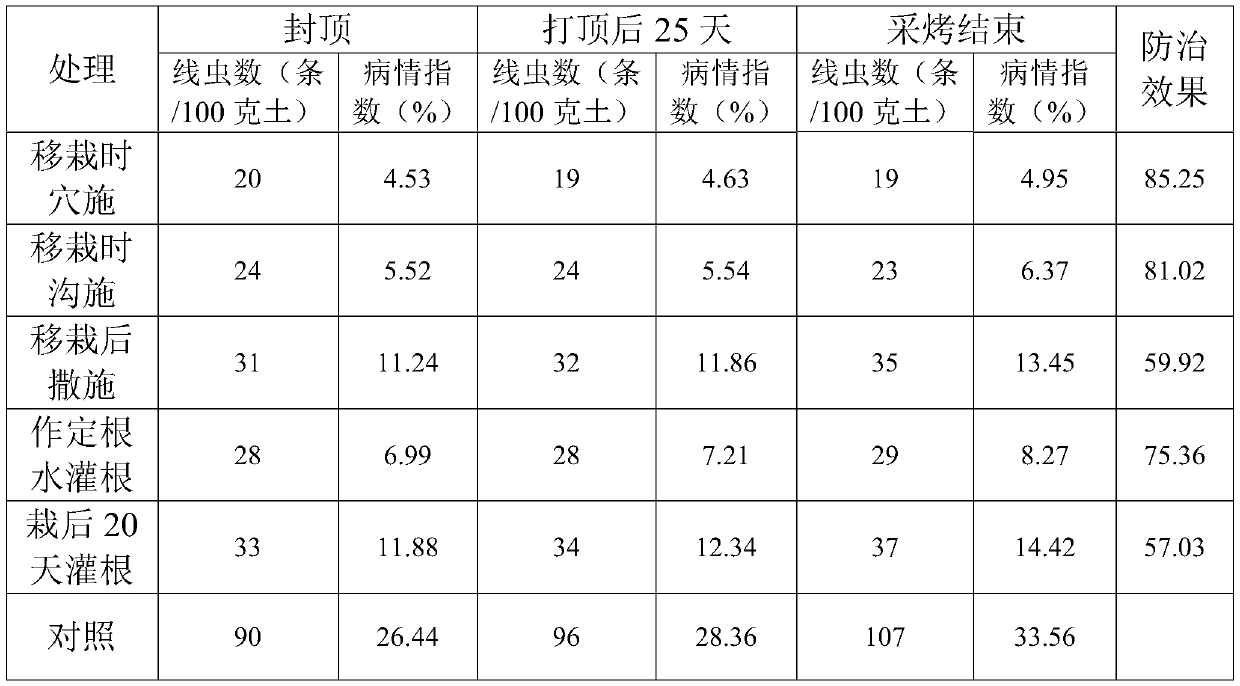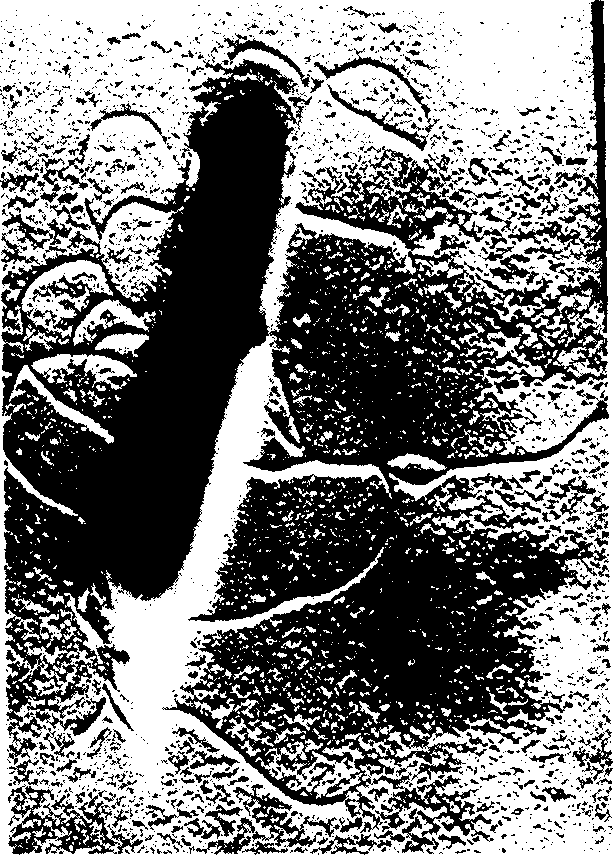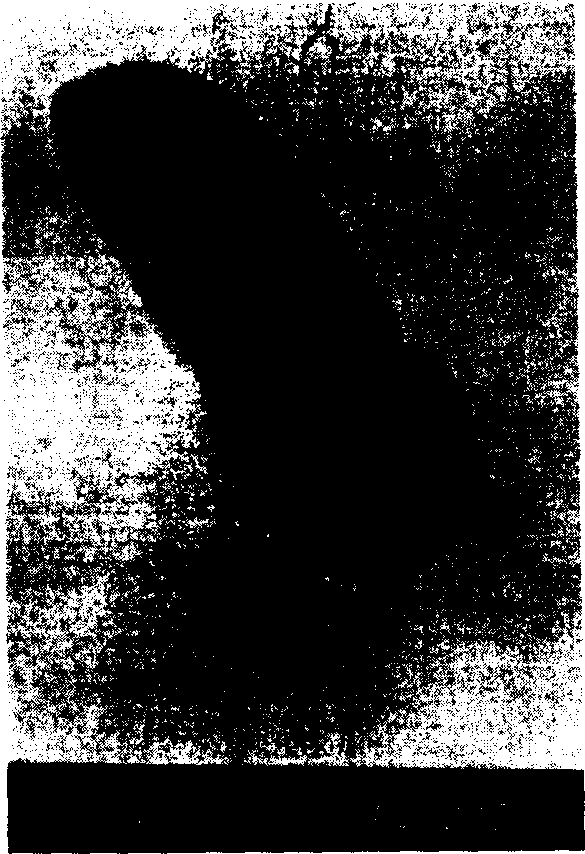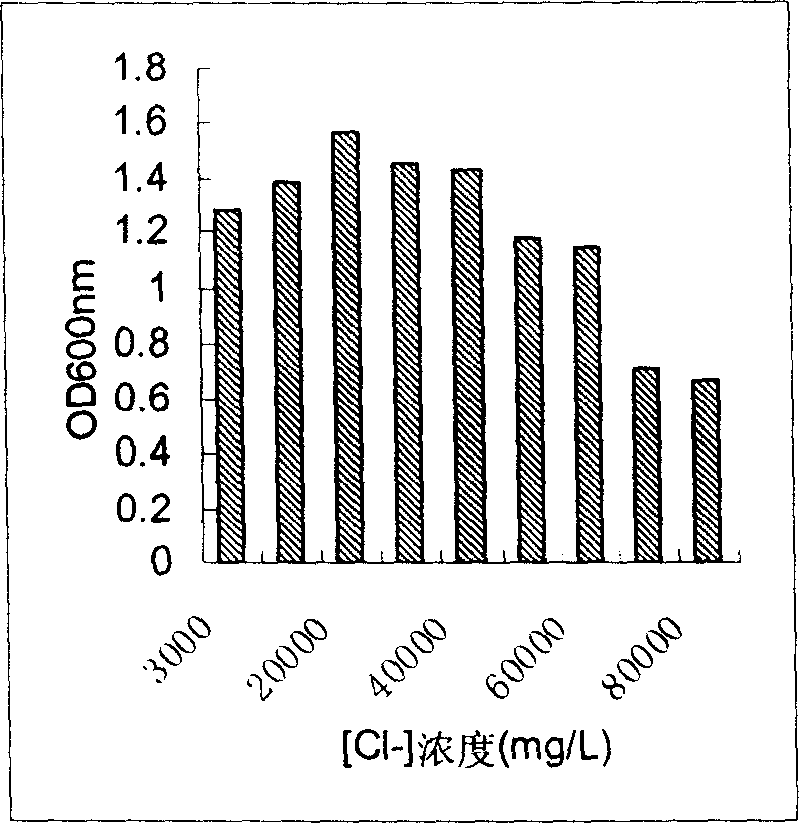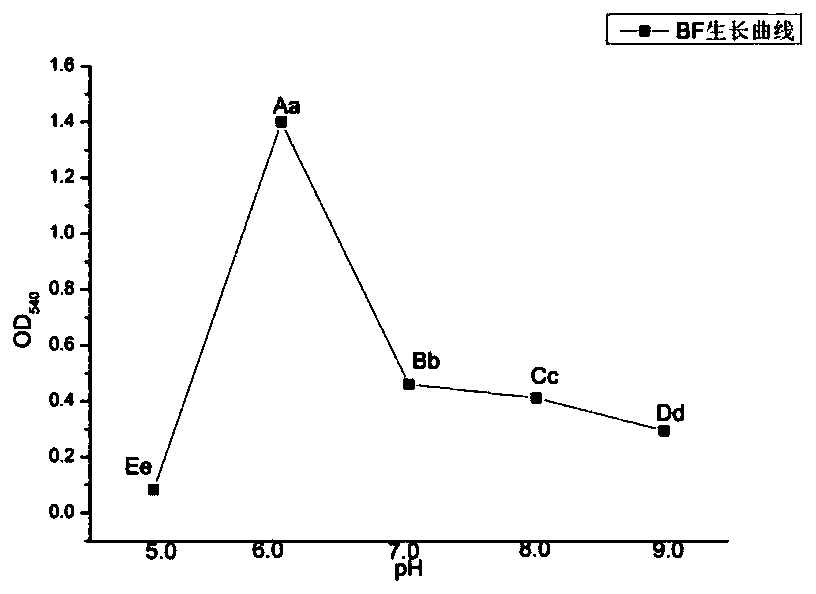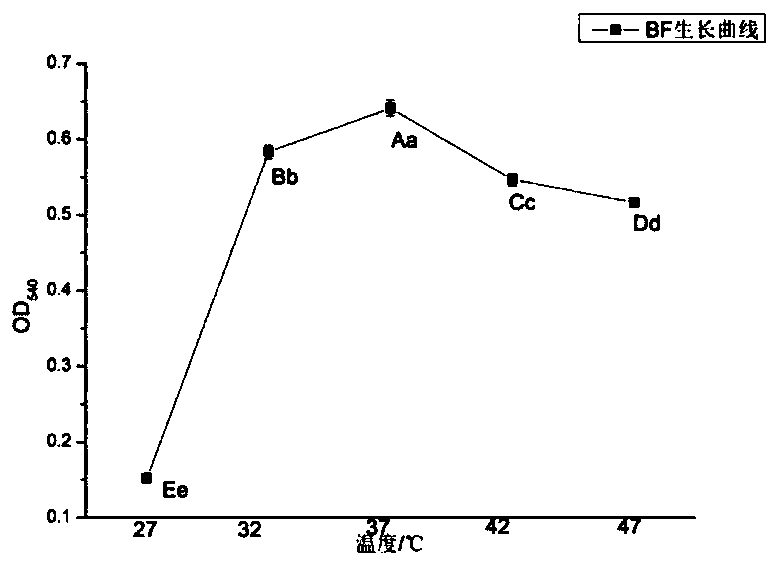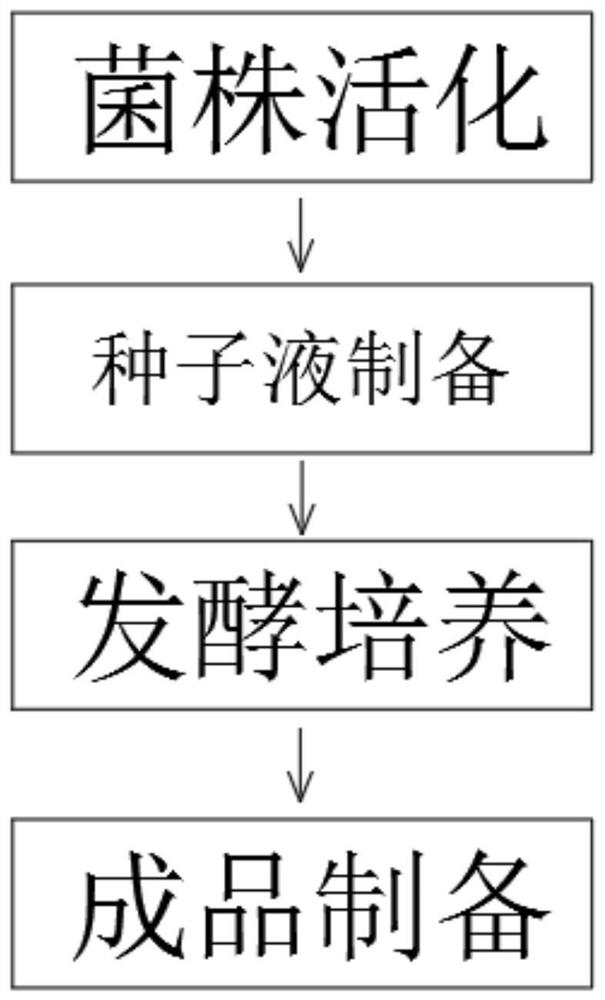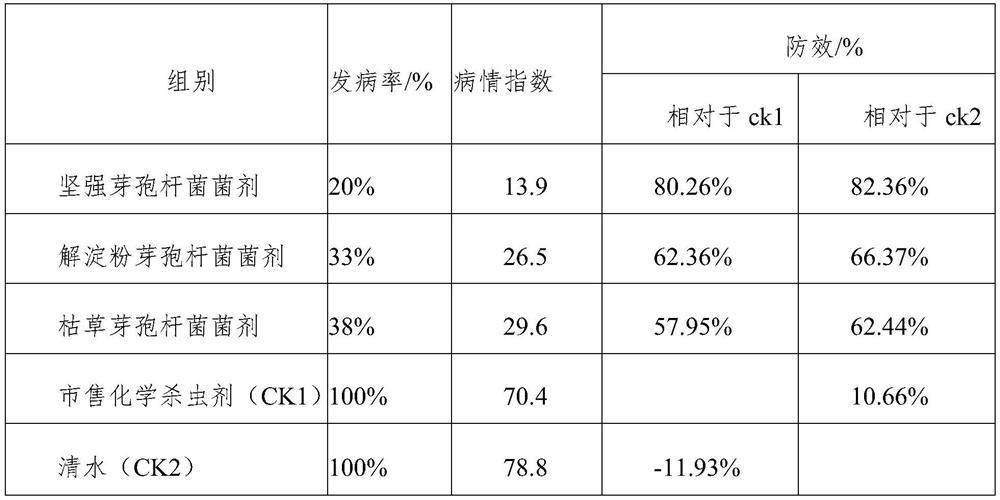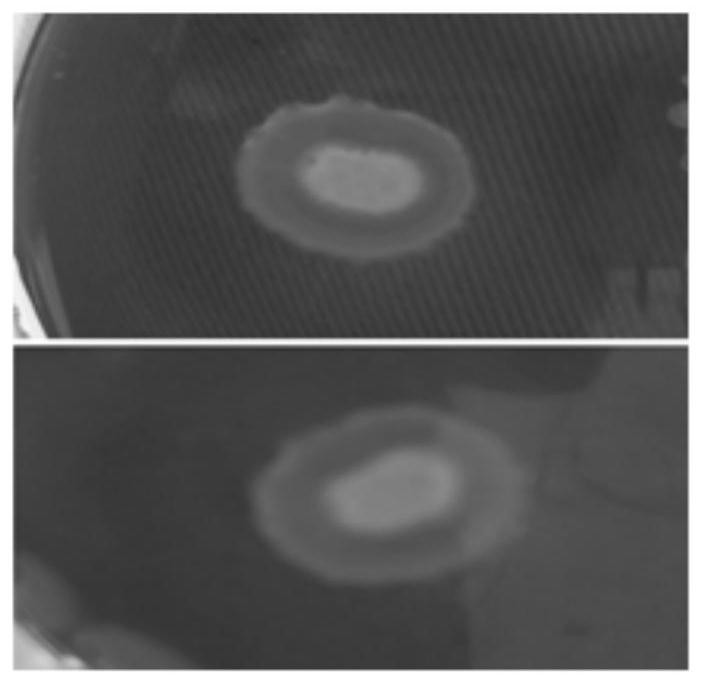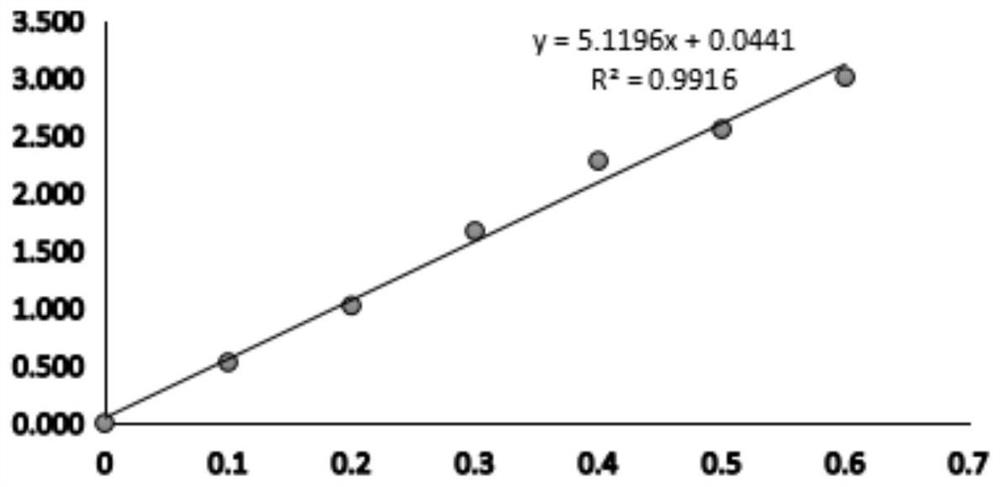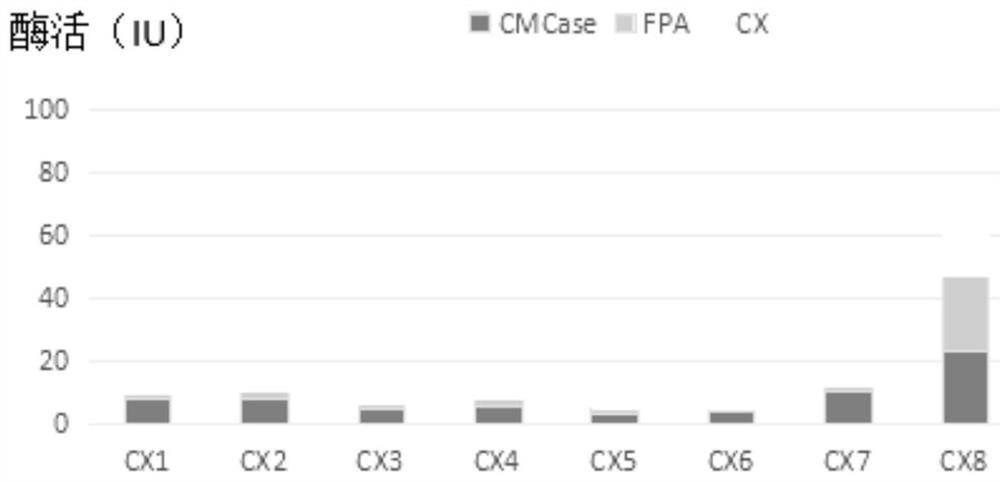Patents
Literature
53 results about "Bacillus firmus" patented technology
Efficacy Topic
Property
Owner
Technical Advancement
Application Domain
Technology Topic
Technology Field Word
Patent Country/Region
Patent Type
Patent Status
Application Year
Inventor
Bacillus firmus is a species of bacteria within the genus Bacillus. Some strains of this species are very alkaline-tolerant and may grow in environments with pH as high as 11.
Bacillus firmus and application thereof
The invention discloses a bacillus firmus strain. The bacillus firmus strain is bacillus firmus Bf-02 CGMCC No.3129, and can prevent and control a plurality of plant diseases, such as the anthracnose of walnuts, the gray mold of cucumber, wheat sharp eyespots, the ring rot of apples, tobacco brown spots, corn southern leaf blight, Dongzao jujube black patch, cotton fusarium wilt, cotton red rot, wheat scab and the like. Tests prove that the zymotic fluid of the bacillus firmus Bf-02 CGMCC No.3129 has remarkable effect of preventing and controlling vegetables, particularly the gray mold of the cucumber with the healthy growth of the vegetables and without hazards, and also remarkable growth promotion and yield increasing effects on the cucumber with the growth rate of 29.95 percent after one-time application.
Owner:宁国市百立德生物科技有限公司
Bacillus firmus strain and application thereof
InactiveCN101993843AIncrease the level of non-specific immunityImprove the ability to resist viral pathogenic infectionBacteriaAnimal feeding stuffPrawnSpecific immunity
The invention relates to a bacillus firmus strain and application thereof. The bacillus firmus strain SSL065 is characterized in that the collection number is CCTCC M 2010192. The bacillus firmus strain powder SSL065 prepared from the strain can be used for enhancing the immunity level of prawn cells and body fluid. The bacillus firmus strain SSL065 of the invention is screened from alimentary canals of the prawn, is an endogenous strain, has obvious effect of improving the nonspecific immunity level of bred prawn, greatly enhances the anti-pathogenic infectivity of the bred prawn, and particularly obviously improves various biological functions such as resistance of the prawn against viral pathogenic infectivity and the like.
Owner:YELLOW SEA FISHERIES RES INST CHINESE ACAD OF FISHERIES SCI
Composition or composite bacterium agent for treating sludge
ActiveCN105886438AAchieve harmless purposeFast growth and reproductionFungiBacteriaSludgeCandida tropicalis
The invention provides a composition, a composite bacterium agent and application thereof. The composition or the composite bacterium agent comprises a composition of at least six or seven strains from bacillus subtilis, bacillus megatherium, pseudomonad, sphingobacterium thalpophilum, candida tropicalis, bacillus firmus and lactobacillus plantarum. The application includes sludge treatment.
Owner:陕西文岭微生物科技有限公司
Preparation method of soil conditioner
InactiveCN109265217AReduce pollutionEnvironmentally friendlySuperphosphatesBio-organic fraction processingBacillus licheniformisFeces
The invention provides a soil conditioner. The soil conditioner comprises livestock excrement, straw powder, superphosphate, potassium chloride, urea and a microorganism composite microbial agent; themicroorganism composite microbial agent comprises a lactic acid bacterium microbial agent, a bacillus firmus microbial agent, a photosynthetic bacterium microbial agent, a bacillus stearothermophilusmicrobial agent, a bacillus subtilis microbial agent, a bacillus licheniformis microbial agent and a bacillus megaterium microbial agent. Agricultural waste is used for preparing a raw material of the soil conditioner, and the soil conditioner is environmentally friendly and low in cost and has good soil conditioning performance of water retention, fertilizer increase and air permeation.
Owner:南京评宇环境工程研究院(有限合伙)
Phosphate Solubilizing Rhizobacteria Bacillus Firmus as Biofertilizer to Increase Canola Yield
A biologically pure phosphate solubilizing plant growth promoting rhizobacteria (PGPR) XSB375 was isolated from canola rhizosphere and identified as Bacillus firmus is provided herein. The PGPR is capable to solubilize phosphate that enhance plant available phosphorous. The PGPR XSB375 enhances seed germination, early emergence, plant vigor, root and shoot growth, and higher crop yield. This increased crop growth, development and yield is attributed from not only the greater phosphate solubilization making more available phosphorus to plant but also making other essential plant nutrients more available to the plant and the like. The application of this phosphate solubilizing PGPR can be done as liquid suspension or solid materials using onto soil, potting mix, seeds, seed pieces, seedlings, foliage, carrier materials, roots and planting soil.
Owner:XITEBIO TECH
Microbial fertilizer
InactiveCN105461368AReduce pollutionQuality leapClimate change adaptationOrganic fertilisersBacillus licheniformisBacillus megaterium
The invention relates to a microbial fertilizer. The microbial fertilizer comprises 84-90% by mass of organic matters and 5-11% by mass of water and also comprises a strain, wherein the strain comprises at least two kinds of aerobic bacteria and at least one anaerobic bacterium; each aerobic bacterium is any one of bacillus subtilis, bacillus megaterium, bacillus stearothermophilus, bacillus sphaericus, bacillus firmus and saccharomycetes; the anaerobic bacterium is any one of bacillus circulans, bacillus licheniformis and lactobacillus acidophilus. The microbial fertilizer has the beneficial effects that the microbial fertilizer has the effects of overcoming the defects of the existing chemical fertilizers, reducing environmental pollution and activating soil; the content of beneficial biological bacteria in the microbial fertilizer is more than 0.3billion / g and biological activating enzymes and various trace elements are supplied, so that the quality of crops has a qualitative leap; through simultaneously containing the aerobic bacteria and the anaerobic bacteria, the microbial fertilizer can work under different conditions, thus increasing the output rates of the crops.
Owner:SHANGHAI JINGSHEN TECH
Method for lowering leaching toxicity of waste incineration fly ash through bacillus firmus
InactiveCN106111659AReduce leaching toxicityReduce processing costsTransportation and packagingSolid waste disposalYeast extractCulture mediums
The invention discloses a method for lowering the leaching toxicity of waste incineration fly ash through bacillus firmus. The bacillus firmus is inoculated into a culture medium containing peptone, yeast extracts and sodium chloride, and shake cultivation is conducted on a shaker till a bacteria solution is completely turbid; the prepared bacteria solution and the waste incineration fly ash are mixed and stirred evenly according to proportions; and a urea solution is sprayed circularly, and the heavy metal leaching toxicity of the waste incineration fly ash is obviously lowered in 3-7 days. The characteristic that the bacillus firmus still has the good survival and reproduction capabilities and urease productivity in the environments of various heavy metals, organic poisons and strong alkaline is utilized, and the leaching toxicity of heavy metal ions in the waste incineration fly ash can be lowered just by adding the bacillus firmus bacteria solution and the urea solution into the waste incineration fly ash. The adopted bacillus firmus has the good environmental tolerance and has the good stabilizing effect on fly ash produced by two incineration processes with grate furnaces and fluidized beds.
Owner:ZHEJIANG SCI-TECH UNIV
Trigenic coexpression vector for synthesizing DL-alanine and application
ActiveCN107794273AImprove conversion efficiencyBacteriaMicroorganism based processesBacillus coliAlanine racemase
The invention discloses construction of a trigenic coexpression vector for synthesizing DL-alanine and application. The construction is characterized in that encoding alanine dehydrogenase (ald), alanine racemase (alr) and glucose dehydrogenase (gdh) genes in pseud bacillus firmus are connected in series and then are inserted into reconstructed plasmid pET-22bNS, so as to construct the trigenic coexpression vector pET-22bNS-G / A / A. After constructed trigenic coexpression vector is transformed into escherichia coli BL21(DE3) and is subjected to whole-cell catalytic reaction for 3h through recombination strain, the output of L-alanine and the output of D-alanine are the highest and are correspondingly 7.0mg / mL and 6.5mg / mL, and the maximum synthesizing efficiency of L-alanine and the maximumsynthesizing efficiency of D-alanine are correspondingly 56.4mg / mL / d and 51.9mg / mL / d. The constructed trigenic coexpression vector has a capacity of efficiently synthesizing DL-alanine and is high inapplication value.
Owner:HEBEI NORMAL UNIV
Aerobic microflora capable of quickly decomposing straw completely
InactiveCN107365719AQuick breakdownPromote growthBacteriaMicroorganism based processesBacillus cereusAlcaligenes faecalis
The invention provides an aerobic microflora capable of quickly decomposing straw completely and belongs to the field of environmental protection and the technical field of microorganisms. According to the aerobic microflora capable of quickly decomposing straw completely, the aerobic functional microflora capable of quickly decomposing the straw is formed through screening and optimizing for the current situation that at present the straw is disorderly treated, and the aerobic functional microflora comprises bacillus subtilis, acinetobacter calcoaceticus, bacillus megatherium, alcaligenes faecalis, bacillus cereus and bacillus firmus. The invention provides a method capable of quickly decomposing the straw, that is, the aerobic microflora is added into the smashed straw; and the aerobic microflora can synergistically decompose straw organic solid waste substances through various clastic enzymes such as protease, lipase and cellulase which are generated by the aerobic microflora, and two thirds of the straw is decomposed within 24 h, and 100% softening of fibers is achieved.
Owner:复环生物科技(上海)有限公司
Microbial organic fertilizer for preventing and treating strawberry anthracnose and application thereof
The invention belongs to the technical field of microbial pesticides, and provides a microbial organic fertilizer for preventing and treating strawberry anthracnose and application thereof in order tosolve the problems that the prevention and treatment of the strawberry anthracnose is neither ideal enough nor stable enough and can not meet actual requirements.The microbial organic fertilizer is prepared from sesame oil residues, chenopodium wheat straws, lyciumruthenicumresidues, naked oat straws, millet straws, jade powder, magnesium sulfate, sugar cane molasses, a composite microbial agent,egg powder and polyacrylamide according to a certain proportion. The composite microbial agent is prepared by mixing bacteria, fungi and actinomycetesin proportion, wherein the bacteria are the uniform mixing of bacillus velezensis, bacillus aryabhattai, bacillus Zhangzhou, bacillus polymyxa and bacillus firmus in proportion, the fungi are trichodermaharzianum, and the actinomycetes are streptomyceteslilaceous. With the microbial organic fertilizer, the ability of strawberry plants to resist anthrax bacteria is improved, the growth of strawberry root systems is promoted, the quality and yieldof strawberries are improved, the creeping stem propagation coefficient of strawberries is increased, more healthy creeping stem seedlings are obtained, and better economic benefits are obtained.
Owner:AGRI BIOTECH RES CENT OF SHANXI PROVINCE
Active Compounds Combination Containing Fluopyram Bacillus and Biologically Control Agent
The present invention relates to active compound combinations for reducing the damage of plants and plant parts as well as losses in harvested fruits or vegetables caused by insects, nematodes or phytopathogens and which have fungicidal or nematicidal or insecticidal activity including any combination of the three activities, in particular within a composition, which comprises (A) Fluopyram, (B) a spore-forming bacterium of the genera Bacillus, selected from Bacillus firmus, Bacillus cereus, Bacillus pumilis, Bacillus amyloliquefaciens, Bacillus subtilis strain GB03, Bacillus subtilis strain QST713, and (C) at least one biological control agent, in particular bacteria, fungi or yeasts, protozoa, viruses, entomopathogenic nematodes, inoculants, botanicals and products produced by microorganisms including proteins or secondary metabolites. Moreover, the invention relates to a method for curatively or preventively controlling insects, nematodes or phytopathogens on the plant, plant parts, harvested fruits or vegetables, to the use of a combination according to the invention for the treatment of seed, to a method for protecting a seed and not at least to the treated seed.
Owner:BAYER CROPSCIENCE AG
Bacillus firmus for killing plant parasitic nematodes, and preparation method and application thereof
The invention relates to blastema firmus for killing plant parasitic nematodes, and a preparation method and an application thereof. The blastema firmus for killing the plant parasitic nematodes is a wild type strain of the blastema firmus YBf-10 which is preserved in China Center for Type Culture Collection in June 14th, 2012, with a preservation number of CCTCCNO. M2012233. The invention also provides the preparation method and the application of blastema firmus for killing the plant parasitic nematodes. Metabolic product of the blastema firmus YBf-10 is prepared by the fermentation of the blastema firmus YBf-10 in a common bacteria culture medium, and can be applied to kill root-knot nematodes. A corrected mortality rate of 24 h is over 50% and the corrected mortality rate of 72 h can reach 100% when the metabolic product acts on second-stage larvas; and inhibited egg hatching rate of 48 h is over 80% when the metabolic product acts on the eggs of the root-knot nematodes.
Owner:HUNAN NORMAL UNIVERSITY
Three-gene co-expression vector for synthesizing tetrahydropyrimidine and application of co-expression vector
InactiveCN107475282AHigh synthesis efficiencyBacteriaAcyltransferasesEscherichia coliAcetyltransferase
The invention discloses construction of a three-gene co-expression vector for efficiently synthesizing tetrahydropyrimidine and application of the co-expression vector. The construction method comprises the following steps: sequentially inserting coded L-diaminobutyrate aminotransferase (ectA) gene,coded L-diaminobutyric acid acetyltransferase (ectB) gene and coded tetrahydropyrimidine synthase (ectC) gene in pseudo-bacillus firmus into a transformed plasmid pET-22bNS according to an isocaudarner principle, and constructing the three-gene tandem co-expression vector pET-22bNS-EctA / B / C. When the constructed three-gene co-expression vector is transferred into Escherichia coli BL21 (DE3) and is subjected to IPTG induction, after a recombinant strain whole-cell catalysis reaction for 3 hours, the highest yield of tetrahydropyrimidine is 9.8mg / mL, and the synthetic efficiency is 78.4mg / mL / d and is higher than a synthesizing level in similar researches. The three-gene co-expression vector constructed by the invention has the ability of efficiently synthesizing the tetrahydropyrimidine and has an excellent application value.
Owner:HEBEI NORMAL UNIV
Bacillius firmus GY-49, screening method and applications thereof
ActiveCN104403968AEfficient denitrificationGrow fastBacteriaMicrobiological testing/measurementHigh concentrationNitrate
The invention discloses bacillius firmus GY-49. The classification name is Bacillus firmus GY-49, the preservation number is CCTCC No.M2014347, and the bacterium strain has been preserved in the China Center for Type Culture Collection (CCTCC) on July 21st, 2014. The invention further discloses a screening method of bacillius firmus GY-49. The invention also discloses an application of bacillius firmus GY-49 in wastewater treatment under an anoxic condition. The invention also discloses an application of bacillius firmus GY-49 in an anaerobic treatment of wastewater with high nitrogen and COD concentrations. The invention further discloses an application bacterium inoculant. The provided bacterium strain can sustain high concentration nitrates and COD, has an efficient denitrifying performance and COD and Cr removing performance under a completely anoxic condition, and is capable of effectively removing nitrates (nitrogen) and reducing the COD content.
Owner:NANJING TECH UNIV
Bacillus firmus strain and application thereof in preventing and treating anthracnose of fig and pomegranate
The invention discloses a Bacillus firmus strain and application thereof in preventing and treating anthracnose of fig and pomegranate. The strain is Bacillus firmus Bf-01, and the collection number is CGMCC No.3039. The experiment indicates that the Bacillus firmus strain Bf-01 has the characteristics of novel strain, high efficiency, high growth speed and high spore yield, and can perform quick abundant colonization on the fig and pomegranate rhizospheres. The Bacillus firmus strain Bf-01 has obvious effects on preventing and treating anthracnose of fig and pomegranate, and the preventing and treating effects reach 78.83% and 80.10%. The fig and pomegranate can grow vigorously, no chemical injury is generated, and the fresh fruit weight gain is up to 10% or above. The Bacillus firmus strain has the advantages of high safety, high efficiency, no chemical residue and no toxic or side effect, and can reduce the consumption of chemical pesticides.
Owner:SHANDONG FOREST SCI RES INST
Active compounds combination containing fluopyram Bacillus and biologically control agent
ActiveUS9433214B2Expand the scope of actionHigh degree of controlBiocideAnimal repellantsBiotechnologyProtozoa
The present invention relates to active compound combinations and compostions for reducing the damage of plants and plant parts as well as losses in harvested fruits or vegetables caused by insects, nematodes or phytopathogens and which have fungicidal or nematicidal or insecticidal activity including any combination of the three activities, in particular within a composition, which comprises (A) Fluopyram, (B) a spore-forming bacterium of the genera Bacillus, selected from Bacillus firmus, Bacillus cereus, Bacillus pumilis, Bacillus amyloliquefaciens, Bacillus subtilis strain GB03, Bacillus subtilis strain QST713, and (C) at least one biological control agent, in particular bacteria, fungi or yeasts, protozoa, viruses, entomopathogenic nematodes, inoculants, botanicals and products produced by microorganisms including proteins or secondary to metabolites. Moreover, the invention relates to a method for curatively or preventively controlling insects, nematodes or phytopathogens on the plant, plant parts, harvested fruits or vegetables, to the use of a combination according to the invention for the treatment of seed, to a method for protecting a seed and not at least to the treated seed.
Owner:BAYER CROPSCIENCE AG
Phosphate solubilizing rhizobacteria bacillus firmus as biofertilizer to increase canola yield
A biologically pure phosphate solubilizing plant growth promoting rhizobacteria (PGPR) XSB375 was isolated from canola rhizosphere and identified as Bacillus firmus is provided herein. The PGPR is capable to solubilize phosphate that enhance plant available phosphorous. The PGPR XSB375 enhances seed germination, early emergence, plant vigor, root and shoot growth, and higher crop yield. This increased crop growth, development and yield is attributed from not only the greater phosphate solubilization making more available phosphorus to plant but also making other essential plant nutrients more available to the plant and the like. The application of this phosphate solubilizing PGPR can be done as liquid suspension or solid materials using onto soil, potting mix, seeds, seed pieces, seedlings, foliage, carrier materials, roots and planting soil.
Owner:XITEBIO TECH
High-density mixed fermentation preparation method of composite bacillus microbial agent
ActiveCN111575201AReduce manufacturing costIncrease spore countBacteriaMicroorganism based processesMicrobial agentHydrolysate
The invention belongs to the technical field of biology, and particularly relates to a high-density mixed fermentation preparation method of composite bacillus microbial agent. Rich nutrient components of the dried distillers' grains are utilized, enzymatic hydrolysate generated by alkaline protease enzymolysis of the dried distillers' grains serves as a fermentation culture medium solvent, and high-density mixed fermentation of the biocontrol probiotic paenibacillus polymyxa and the bacillus firmus is achieved by controlling the fermentation pH, performing fed-batch cultivation and maintaining the dissolved oxygen amount. The effective viable count of the paenibacillus polymyxa in the fermentation liquor can reach 1.2 to 1.5* 10<10>CFU / mL, and the effective viable count of the bacillus firmus can reach 8.0 to 9.0*10<9> CFU / mL, so that the fermentation time is shortened, and the production efficiency is improved. The number of effective viable bacteria or viable spores in the compositebacillus microbial agent prepared from the dry vinasse enzymolysis residues can reach 3.0-6.6*10<11>CFU / g, full utilization of the dry vinasse raw material is achieved, and the production cost of themicrobial agent is reduced.
Owner:DALIAN UNIV OF TECH +1
Microorganism useful for improving saline-alkali soil, microbial agent and microbial improver for saline-alkali soil
ActiveCN110846249AImprove fertilityReduce saltBacteriaOther chemical processesMicroorganismAlkali soil
The invention discloses a microorganism useful for improving saline-alkali soil, a microbial agent and a microbial improver for the saline-alkali soil. The microorganism is Bacillus aquimaris QR-1 with the collection number of CGMCC NO. 18407. Besides, the Bacillus aquimaris QR-1 and a Bacillus firmus with the strain number of QR-2 and the collection number of CGMCC NO. 18408 are compounded to prepare the microbial agent, and the saline-alkali soil is more effectively improved. After the microorganism useful for improving the saline-alkali soil and the microbial agent are prepared into the microbial improver for the saline-alkali soil, the microbial improver is applied to the saline-alkali soil, soil fertility can be improved, fertilizers and water are retained, damage by diseases and insects is relieved, soil salinity and potential of hydrogen are reduced, and the microbial improver plays a positive role in saline-alkali soil improvement.
Owner:山东省土地综合整治服务中心 +1
Organic processing inocula, cultivation method, inoculation method and use in toilet
InactiveCN101412975AEfficient decompositionIncrease vitalityBacteriaClimate change adaptationBacillus licheniformisFungicide
The invention discloses a fungicide for the treatment of an organic matter, which comprises same volume of bacillus firmus, bacillus cereus, bacillus subtilis, bacillus licheniformis, and bacillus sphaericus. The fungicide has the advantages of good stability, strongcapacity of decomposition, and no pollution.
Owner:陈纪明 +1
Bacillus firmus, bacterium agent and application thereof
The present invention discloses one kind of Bacillius firmus SAB-1 preserved in the preservation number of CGMCC No. 2100, and the microbial preparation prepared with Bacillius firmus SAB-1. The Bacillius firmus SAB-1 may be applied in controlling powdery mildew of strawberry, and has the features of high efficiency, broad bacteriostasis spectrum, simple use, low cost, no environmental pollution,etc.
Owner:INST OF PLANT PROTECTION HEBEI ACAD OF AGRI & FORESTRY SCI
Compositions and methods for controlling plant-parasite nematode
An entity having anti-nematodal activity derived from Bacillus firmus bacteria selected from the group consisting of isolated biosurfactant, isolated protease enzyme, isolated amylase, isolated lipase, and isolated cellulase, is disclosed. The discosure also provides for compositions comprising the same, methods of making the same, methods of controlling plant-parasite nematode, and methods of protecting plants.
Owner:BAYER CROPSCI LP
A kind of bacillus firmus bacterial agent and its preparation method and application
The invention relates to the technical field of microorganisms, and in particular to a bacillus firmus inoculant. Each gram of the inoculant contains 1x10<10-12> viable bacillus spores; and the bacillus firmus is preserved in China General Microbiological Culture Collection Center with preservation number of CGMCC NO.1.2010. The inoculant can be used for preventing and controlling root-knot nematode disease in such crops as tobacco, banana, tomato and the like; and the inoculant is safe to human and animals, good in environmental compatibility, free from residue of micro toxicity and free from pollution, and drug resistance of harmful pest cannot be caused easily.
Owner:JIANGXI SHUNQUAN BIOTECH CO LTD
Process for preparing viable bacillus firmus preparation
InactiveCN104232534AHigh content of active ingredientsIncrease unit outputBacteriaMicroorganism based processesGrowth promotingDrug biological activity
The invention relates to a process for preparing a viable bacillus firmus preparation. According to the process, after bacillus firmus undergoes first-stage germ amplification culture and second-stage germ amplification culture, the bacillus firmus is inoculated to a fermentation culture medium for culture, and the number and conversion ratio of bacilli is increased through feeding a supplement carbon source during fermentation, so that the unit yield is increased remarkably, and the unit cost is reduced; at the end of fermentation, fermentation liquor is concentrated with a vacuum film concentrator, so that soluble synergistic substances, growth promoting substances and bacteriostatic active substances can be effectively recovered from the fermentation liquor; the concentrated fermentation liquor is subjected to drying and granulating by multi-level low-temperature spray-fluidized drying equipment, granules are subjected to sorting, fine powder gathered by a cyclone separator returns and is granulated again, and then, a bacillus firmus product, of which the CFU of powder per gram is not less than 1.0*10<11>, is obtained; exhaust gas is treated and is discharged after reaching standard. The process has the advantages that effective substances in the fermentation liquor can be reserved to the maximum, the quality of the product is high, the equipment utilization ratio is high, the retention of biological activity is relatively good, waste gas and waste water are discharged after reaching standard, and large-scale industrial production can be achieved.
Owner:HUBEI BIOPESTICIDE ENG RES CENT
Use of chlorine-resisting strain S616
Owner:CHINA UNIV OF GEOSCIENCES (WUHAN)
A kind of high-density mixed fermentation preparation method of compound bacillus bacterial agent
ActiveCN111575201BReduce manufacturing costIncrease spore countBacteriaMicroorganism based processesNutritionPaenibacillus polymyxa
The invention belongs to the field of biological technology, and in particular relates to a high-density mixed fermentation preparation method of a compound bacillus bacterial agent. The invention utilizes the rich nutrient components of dried distiller's grains, adopts the enzymatic hydrolysis solution produced by alkaline protease to enzymatically hydrolyze the dried distiller's grains as a solvent for the fermentation medium, and realizes biocontrol and probiotics by controlling the fermentation pH, adding feeding materials and maintaining dissolved oxygen The bacteria Paenibacillus polymyxa and Bacillus firmus are fermented at high density, and the effective number of viable Paenibacillus polymyxa in the fermentation broth can reach 1.2‑1.5×10 10 CFU / mL, the effective viable count of Bacillus firmus can reach 8.0‑9.0×10 9 CFU / mL, which shortens the fermentation time and improves production efficiency. The effective number of viable bacteria or the number of viable spores in the compound bacillus inoculum prepared by using the dried distiller's grain enzymatic hydrolysis residue can reach 3.0-6.6×10 11 CFU / g, realizing the full utilization of dry distiller's grain raw materials, reducing the production cost of bacterial agents.
Owner:DALIAN UNIV OF TECH +1
Microbial strain BF-1801 for efficiently degrading cellulose
PendingCN110055195AHas the ability to degradeImprove stabilityBacteriaMicroorganism based processesFermentationBeta-Glucosidases
The invention belongs to the field of microbes and particularly discloses a microbial strain BF-1801 for efficiently degrading cellulose and its application. The microbial strain BF-1801 for efficiently degrading cellulose is Bacillus firmus, its preservation number is CGMCC No.16869 (General Microbiology Center of China Microbiological Culture Collection and Management Committee). When the microbial strain BF-1801 uses corn straw as a substrate, cellulose degradation rate is 45.05%, the hemicellulose degradation rate is 31.35%; the enzyme activities of beta-glucosidase, endoglucanase and exoglucanase are 2.12 ug / ml.min, 0.617 ug / ml.min and 0.442 ug / ml.min respectively. After alkali pretreatment (10% NaOH, treatment at 80 DEG C for 180 minutes), the cellulose degradation rate and hemicellulose degradation rate of the corn straw reach 48.70% and 77.23% respectively; the cellulose degradation rate and hemicellulose degradation rate of salix psammophila reach 42.67% and 89.33% respectively. The strain can produce lactic acid and acetic acid after fermentation. The strain can carry out fermentation degradation on agricultural wastes rich in cellulose, improves the utilization rate of biomass resources, and has obvious economic and ecological significance.
Owner:INNER MONGOLIA UNIV OF TECH
Preparation method of bacillus firmus bacteria powder
InactiveCN108913636AReduce fatality rateIncrease productionBacteriaMicroorganism based processesDiseaseCase fatality rate
The invention discloses a preparation method of bacillus firmus bacteria powder. The preparation method comprises the following steps that 1, laboratory operations are carried out, specifically, (1) environmental sterilization is carried out, (2) culture medium preparation is carried out, (3) sterilization is carried out, (4) inoculation to a shaking flask is carried out, and (5) culture is carried out; 2, workshop operations are carried out, specifically, (1) empty sterilization is carried out, (2) feeding is carried out, (3) sterilization of solid can is carried out, (4) cooling inoculationis carried out, (5) fermentation culture is carried out, (6) detection is carried out, and (7) spray drying is carried out. The preparation method has the following beneficial effects that bacterial powder prepared through the step reduces the mortality rate of crops, reduces the incidence rate of diseases and improves the yield of the crops.
Owner:SHANGDONG TENOV PESTICIDES
Fermentation preparation of bacillus firmus for preventing tobacco root knot nematode and applications
Owner:JIANGXI SHUNQUAN BIOTECH CO LTD
Bacillus firmus CX8 from termite gut and application of bacillus firmus CX8
ActiveCN111705008AHigh biodiversity valueBacteriaBiofuelsBiotechnologyFacultative anaerobic organism
The invention discloses bacillus firmus CX8 from a termite gut. The strain is collected in the China General Microbiological Culture Collection Center (CGMCC) with the address of No.3, No.1 Yard, Beichen West Road, Beijing 3 Chaoyang District on August 27th, 2018, and has a collection number of CGMCC No. 16342. The strain is gram-positive bacillus and is free of capsule, endogenous spores can be seen through spore staining, a bacterial colony is round and single, the color of the bacterial colony is white, and the edge of the bacterial colony is complete. The strain is a facultative anaerobicstrain for producing cellulase; and within 48 hours, the CMCase enzyme activity of the strain is 67.8 IU / mL, and the CX enzyme activity of the strain is 20.96 IU / mL. The strain not only has very highbiodiversity value, but also has scientific value for further research in development and application of cellulose-enriched crop and traditional Chinese medicine fermentation recycling technologies.
Owner:LANZHOU INST OF ANIMAL SCI & VETERINARY PHARMA OF CAAS
Features
- R&D
- Intellectual Property
- Life Sciences
- Materials
- Tech Scout
Why Patsnap Eureka
- Unparalleled Data Quality
- Higher Quality Content
- 60% Fewer Hallucinations
Social media
Patsnap Eureka Blog
Learn More Browse by: Latest US Patents, China's latest patents, Technical Efficacy Thesaurus, Application Domain, Technology Topic, Popular Technical Reports.
© 2025 PatSnap. All rights reserved.Legal|Privacy policy|Modern Slavery Act Transparency Statement|Sitemap|About US| Contact US: help@patsnap.com
